Gather Lessons

100 Questions about Movies for the ESL Classroom
Movies are one of the most popular ways to spend a night in with friends or family. They provide an escape from reality for two hours and make us feel like anything is possible.
In addition, there are many types of movies that appeal to different people such as action, romance, comedy and more!
So get your popcorn because this blog post has all questions about movies that you ever need to have a great classroom conversation.
Table of Contents
How to Use These Conversation Questions
Questions about movies, questions about movies: part a, questions about movies: part b, questions about movies: part c, questions about movies: part d, questions about movies: part e, going to the movies : part f, questions about movies: part g, have you watched any of these movies, more conversation questions.
Basically, all you have to do is printing these questions and giving one or two questions to your students.
You don’t have to read and answer every question to feel that you accomplish your goal.
Just ask one student to read the first question and then let the conversation move from there
These are some great discussion questions about movies.
They have been divided in 10-question sets to make it easy for you to go through them
Remember that students can make follow-up question if there is genuine interest to know more about the answer a classmate gave.
This is the first set of questions about movies
- Who is your favorite actor /actress? Can you talk to me a little bit about his /her movies?
- What’s your favorite movie? What’s your favorite movie genre?
- Do you watch movies on Netflix? What do you think about some Netflix Originals?
- How often do you watch movies?
- What’s better for you? Going to the theaters or streaming a movie at home?
- When was the last time you went to the movie theaters?
- Do you usually watch movie in illegal sites?
- Do you think a movie app subscription is better than a cable subscription?
- Have you ever watched independent films.
This is the second set of questions about movies
- What do you think about superhero movies?
- Which movies are better, DC or Marvel movies?
- Do you prefer to watch movies alone or with friends and family?
- In your opinion, what’s the scariest film ever?
- What’s the best comedy movie of all time?
- What’s the best horror film of all time?
- Do you watch award ceremonies such as the Oscar?
- Have you ever attended to a Film Festival?
- What movie star would you like to meet?
- Have you ever watched a movie more than three times?
This is the third set of questions about movies
- Have you ever watched the Exorcist?
- Have you ever watched any of the Tarantino Films?
- When was the last time you watched a movie? Tell a little about that film?
- Do you ever watch documentaries?
- Have you ever cried during a film?
- Do you buy DVD’s or download movies?
- What kinds of films do you not like to watch?
- Do you prefer fiction or non-fiction films?
- What popular film do you think it is a complete waste of time?
This is the fourth set of questions about movies
- What do you think about Hollywood Films?
- What’s the most disturbing movie you have ever watched?
- Do you think there is too much violence in movies?
- Would you like to be an actor? Why / Why not?
- What movie do you really hate? Why do you hate it?
- How much does it cost to see a movie in your country?
- Do you think that films can be educational?
- Who’s your favorite director?
- Can you give us three film recommendations?
- Which do you prefer to watch movies or to read books?
This is the fifth set of questions about movies
Streaming apps are very popular these days, check some interesting questions about movies and streaming apps
- What streaming apps are you currently subscribed to?
- What streaming apps have you used in the past?
- Do you recommend being subscribed to more than one streaming app?
- What streaming platform have the best movies?
- What’s the most expensive streaming app?
- What do you like and dislike about Netflix?
- What do you like and dislike about Amazon video?
- What do you like and dislike about HBOMax?
- Do you think that people are willing to pay for subscriptions?
- What do you think about movie applications such as Netflix?
These are some questions about going to the movies
- Do you usually go to the movies?
- Why do you like going to the movies?
- Why don’t go to the movies that often?
- When was the last time you went to the movies?
- What movie did you watch the last time you went to the movies?
- Do you buy popcorn when you watch a film on a theater?
- Who do you usually go to the movies with?
- What type of movies do you usually watch on the theater?
These are some questions about the best movies of all time
- What’s the scariest movie of all times?
- Who do you consider the best actor is?
- Who do you consider the best actress is?
- What actions movies do you recommend?
- What romantic films do you usually recommend?
- What’s the best trilogy?
- What are the best Netflix originals?
- What are the best HBO originals?
- What’s the worst horror movie that you have ever watched?
- What’s the worst superhero movie that you have ever watched?
These are some of my favorite movies, you can try using this list as a reference or create your own
There are movies for everyone, and I hope you take some time off to watch a good film every now and then. Whether it’s the latest blockbuster or an old favorite from your childhood, there is always something that can be watched on TV or at home when we have some time off.
If you are looking for more conversation topics, check some of these
- 40 Questions about Pollution
- 100 Questions about Music
- 100 Questions about Love: Dating and Marriage
- 40 Questions with Will: Guide & Examples
- 30 Questions with Going to
- 40 Present Perfect Questions
- 30 Present Continuous Questions
I am Jose Manuel, English professor and creator of EnglishPost.org, a blog whose mission is to share lessons for those who want to learn and improve their English
Related Posts

Questions about Holidays for the ESL Classroom

Video Games: Conversation Questions

Discussion Questions about Poverty
9 Thought-Provoking Discussion Questions To Spark Meaningful Conversations About Movies In English
by EFL Listening Teacher | understand English movies | 5 comments
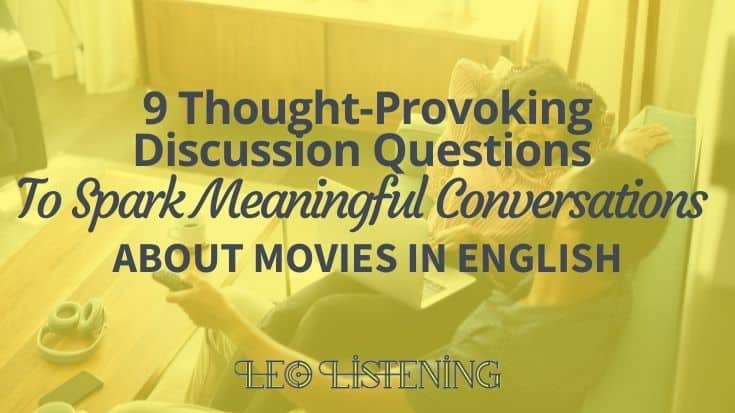
“So, did you like the movie?”
“Yes”
“So, shall we go get a drink or something…?”
Have you ever had a conversation like that one after coming out of the cinema?
Movies immerse you into the authentic language and culture of English-speaking countries. But, to get the most from watching films, and to connect in English with others, you need to talk about what you watch.
If you want to have deep discussions, you’ll need some thought-provoking discussion questions, like the ones you’ll discover in this post. No more asking yes-no questions and then running out of things to say.
You can use these questions by yourself. For example, you can write about them in your journal . Or you could record yourself answering them in the dictation app on your smartphone.
Otherwise, you could chat with a teacher or classmate about them to practise your English conversation skills.
You’ll find questions to make you think as well as questions to help you develop your English. So let’s get into it so you can start having meaningful discussions in English about the films you’re watching.
#1 How would you describe the main character and/or your favourite character(s)? And how does this compare with others people’s descriptions?
This is a great question to help you practice using the language of descriptions. But I encourage you to go a lot deeper that a physical description of the character.
You can describe how they move, how they interact with others, their personality, their fears, their deepest desires. Try to describe this person and their motivations in as much detail as possible.
Getting under the character’s skin is a great way to understand them better and develop empathy for them, even if you have a hard time understanding some their behaviour.
You can also compare your description of this character with other people for an insightful discussion.
- Do they see this character in the same way? As a victim, a bully, someone misunderstood, someone complicated etc.
- Or do they have a completely different interpretation of this person?
#2 If you could speak to the screenwriter/director, what would you ask?
What questions do you have about the screenplay, the story, the characters and other choices the screenwriter and director made?
- Are there sections of the movie you would remove? Are there parts you would add?
- Did you not understand a part of the movie, like the ending?
- Are there characters you felt deserved more screen time? Or less?
Think of all the things that bothered you about the movie. And maybe some things you liked. And then decide what questions you would ask.
Even if you probably won’t be able to speak to the screenwriter or director, you could try to imagine their response.
Or, you can turn this into a listening or reading activity. You could look for interviews with the director on YouTube, on podcasts or in movie magazines or websites.
Perhaps you’ll find answers to your questions there. Perhaps journalists and movie fans have also asked similar questions. Or completely different ones. In any case, you’ll get a new perspective on the film this way.
#3 What are the themes of this movie?
So here you’re going deeper than the story of the movie. You want to dig deep into the big themes and also the sub themes of the movie. When you take a step back, ask yourself – what is this movie asking us to explore about the human condition?
As part of Movie Club , we watched the 2009 Clint Eastwood Movie “Gran Torino” . One of the big themes of this movie is racism.
But another thread running through the film is masculinity.
- What does it mean to be a man?
- Which “men” in the movie are considered not masculine enough and why?
- Who defines masculinity in this Detroit neighbourhood where demographics are changing?
It can be interesting to explore the various themes and how they interact with each other. You can also compare this movie with others that explore the same themes. How are they similar or different? What is their particular approach to the theme? Which movie deals with it better? And why?
#4 What’s the message of the movie?
Again, to answer this question, you’ll need to go deeper than summarising the story or describing the movie. What did this movie leave you with? What is the message about the human condition that it touches on?
There is no one right answer to this question and that’s what makes it excellent for sparking discussion.
Other people may have different interpretations and that’s something you can discuss. There may also be multiple messages that this movie sends and people might classify them differently too.
Once again, you can compare movies with a similar message and look at how the approach it in similar or different ways.
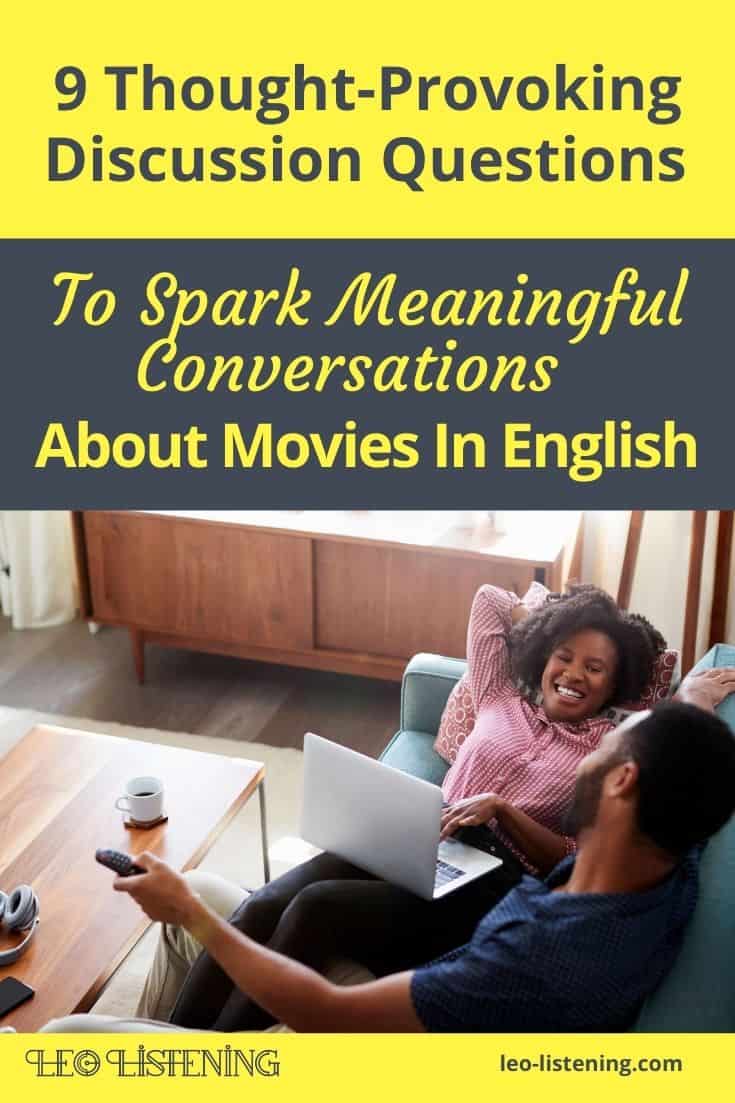
#5 How did this movie make you feel?
This can help with some of the other questions as we can’t always explain our analysis with reasoning or logic. Often it comes down to what this movie made us feel – moved, frustrated, humbled, scared, confused, angry, outraged, delighted, surprised and more.
- So how did you feel as you watched it?
- What about afterwards?
- Did you expect to feel a certain way? If so, did your expectations and your actual feelings match up or not?
- How do your feelings compare with those of others? Did they feel them same way? Were you surprised but how the movie made them feel?
#6 What star rating would you give this movie? What review would you write? How does this compare with other published reviews?
This is a great question to play with if you’re working on your own and practising your writing skills. You can decide on your own rating and write a short review and then check out the reviews of fans and critics on sites like IMDb or Rotten Tomatoes .
Were the reviews of the movie generally positive or negative? What about at the time compared to now? Some movies are misunderstood on their release, but then become classics in the years that follow as new audiences discover them.
Here are a couple of examples:
Blade Runner didn’t do well on its release in 1982 and the critics disagreed about it. But in the years that followed it became a cult classic. And it’s now regarded as one of the greatest science fiction films of all time.
The Princess Bride was well-received by critics on its release, but didn’t do so well in cinemas. Again, over time, it became a cult classic.
#7 Which character did you identify with the most/the least? Why?
This is another great question to ask a group or a partner . It can be interesting to see how people’s background, culture, assumptions, preferences affect their answers.
It’s no doubt easier to identify with a character that resembles you in some way. It might be easier for you to relate to the characters if people from your background have a lot of representation on screen (white, male, young etc).
If the movie is set in a different time and place, then it might be trickier to relate to the characters when we look at them through a modern lens. But some themes, characters, experiences, transcend time and space.
#8 Has this movie aged well? Would it get made today?
We live in rapidly changing times. And our societies are going through a reckoning to do with sexism, racism, ableism, fatphobia, homophobia and transphobia.
You may have noticed that even certain recent movies and TV series are out of step with some of these rapidly changing attitudes.
We watched “Love Actually” as part of the Movie Club and we were shocked by the casual fat-shaming of one of the characters, as well as many other problems.
The messages of certain movies may be timeless. But even so, the films may be in need of an update. We have watched some beautiful period dramas recently, but these movies are very white.
Now, you may argue that this is an issue of historical accuracy. Yet, Netflix period drama hit Bridgerton is set in the early 1800s, but in an alternate history where London is racially intergrated. That means they were able to cast black actor Regé Jean-Page to play Simon Bassett, Duke of Hastings.
#9 Did anything in this movie remind you of something that has happened in your own life or in the lives of others?
Movie are supposed to be fiction, but sometimes as we say “the truth is stranger than fiction”. Perhaps you relate well to a particular film because you’ve been through something similar in your life. In which case, did the movie do a good job of conveying that experience? Why or why not?
Sometimes though, even if we’ve never experienced the same things as the characters, a good movie draws us in. And good character develop enables us to empathise with them, and feel with them. Which is why we end up experiencing the same emotions as the characters when we watch!
Want to talk about movies and connect with film lovers from around the world?
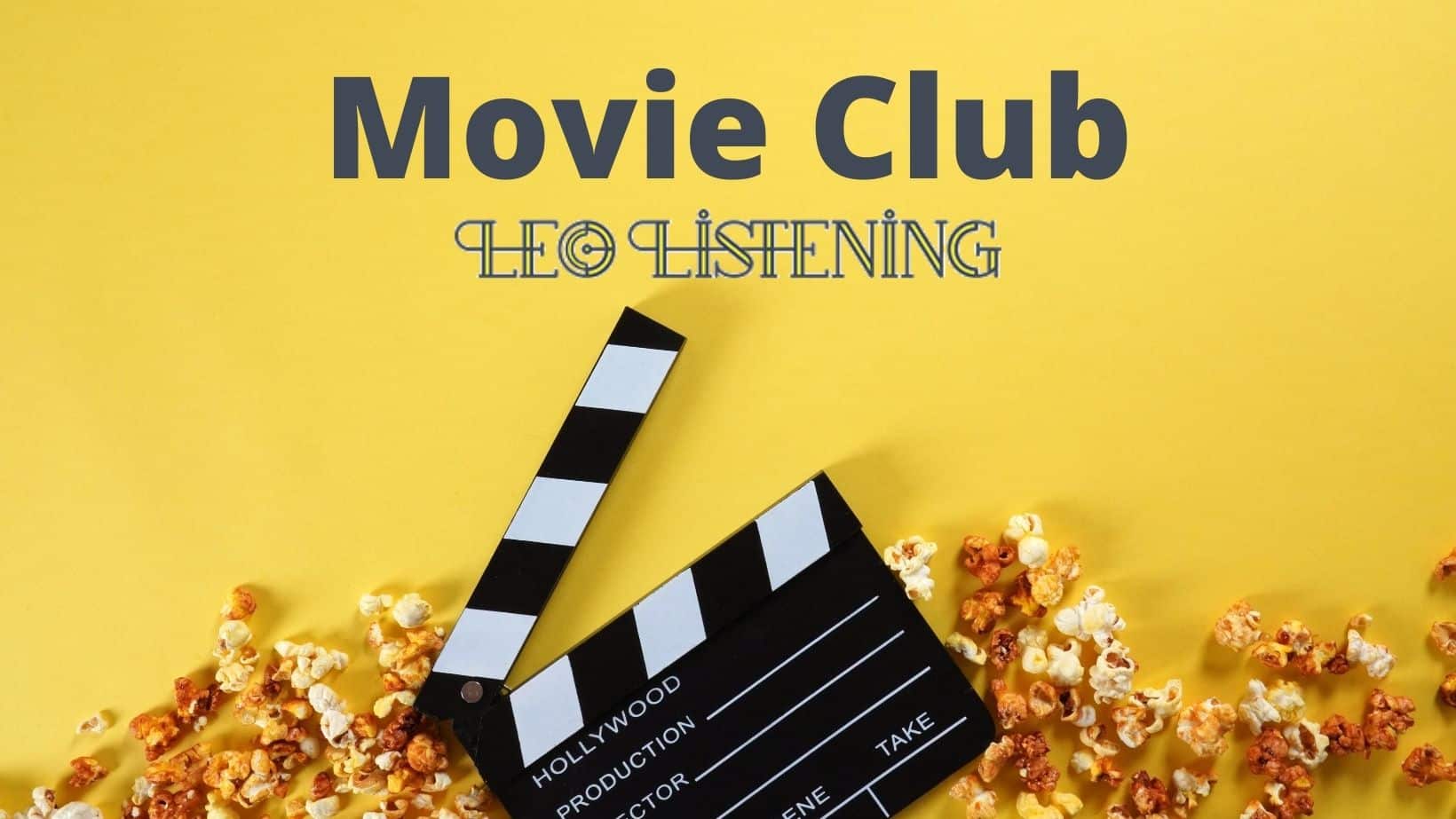
“Movie Club” is a supportive and friendly community of movie lovers where you can learn and practice your English in a safe space. The club opens for enrolment three times a year. The next round, May to July, will open in April to new members. Find out more and join us.
Great post Cara! Watching movies and TV shows became one of my favorite things to do during the pandemic. Your post reminded me of my conversations with my wife about the movies we watch. I always like to trigger conversations with one question:
-What would you do if you were [a character from the movie] when [A specific event of the movie] happened?
I know it’s a little lame, but I think it’s fun when you imagine yourself being the hero or the villain of the movie lol.
Besides, it’s amazing to see how a single question can trigger long conversations, we’ve even talked about deep matters after movies.
That’s such a great question Diego, I’ll have to add it to the list. Thanks! Almost all we talk about are deep subjects after watching the movie, even if the movie itself wasn’t necessarily serious. An example – fat shaming in “Love Actually”!
Yep, that’s the way to enjoy a movie, a good conversation afterward, instead of passively watching it and then forget about it.
Absolutely. I watched mamma mia 2 last night, and I felt it hit me harder than it did the first time I watched it. I think being able to discuss a movie after watching it is a good thing rather than just passively watching it.
In the movie Possession starring Sarah Gellar made 2008. Did the brothers have matching tatoos
Submit a Comment Cancel reply
Your email address will not be published. Required fields are marked *
Download your free guide: Understand Movies in English
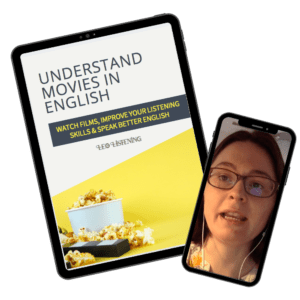
Improve your English listening skills in 2 weeks

Pin It on Pinterest
Privacy overview.
Functional cookies help to perform certain functionalities like sharing the content of the website on social media platforms, collect feedbacks, and other third-party features.
Performance cookies are used to understand and analyze the key performance indexes of the website which helps in delivering a better user experience for the visitors.
Analytical cookies are used to understand how visitors interact with the website. These cookies help provide information on metrics the number of visitors, bounce rate, traffic source, etc.
Advertisement cookies are used to provide visitors with relevant ads and marketing campaigns. These cookies track visitors across websites and collect information to provide customized ads.
Other uncategorized cookies are those that are being analyzed and have not been classified into a category as yet.
Movies Conversation Questions
Warm-up Questions: What movies came out this year? What movies are out now? Which of them have you seen? How were they?
Discussion Questions:
- What genres of movies do you like?
- What's your favorite movie of all time? Why do you like it?
- What's the worst movie you have ever seen?
- Is going to the movies too expensive? How much are you willing to pay to see a movie at the cinema? Will you pay more to see a 3D, 4D, or IMAX movie?
- Who is the most beautiful actress in the world? Who is the most handsome actor in the world?
- Talk about someone that you think is very talented at acting.
- Do you like animated movies? Or are they just for kids?
- Do you enjoy movies from your own country or other countries more? From which other countries?
- Do you try to watch films that win awards? Are awards good indicators of film quality?

- What do you like to eat or drink while watching a film?
- How long should a movie be? How long is too long?
- Are sequels ever as good as the original? Give examples of good sequels if you can.
- How do you choose which movie to watch? By the genre? The director? The main star?
- Does watching movies in English help you learn English? Would you recommend this method to language students?
- Can we learn about a culture from the movies that culture produces? What have you learned from foreign films?
- Do you mind reading subtitles when you watch a foreign language film, or would you prefer it to be dubbed into your own language?
- Films are rated for age-appropriateness. Are these ratings effective?
- Are you looking forward to any upcoming movies? What film do you want to watch these days?
Other Topics:
Fame and Publicity
Video Games
Television and Video
Art and Design
Support Print Discuss
When you buy the eBook
Find more questions at PrintDiscuss.com

40+ Movie Conversation Questions to Spark Your Dialogues
Lights, camera, conversation! Movies have the uncanny ability to transport us to different worlds, evoke emotions, and ignite discussions that last long after the credits roll. Whether you’re a cinephile, a casual viewer, or someone looking to break the ice, movies are an enchanting gateway to meaningful conversations. In this article, we’re delving into a treasure trove of movie conversation questions that will not only enhance your interactions but also leave you with a reel sense of connection. So, grab your popcorn and let’s embark on a cinematic conversation journey!
Table of Contents
How To Start a Movie Conversation?
Starting a movie conversation is as easy as setting up the perfect movie night. Begin with a simple, “Have you watched any interesting movies lately?” or dive into nostalgia with, “Do you remember the first movie that left a lasting impression on you?” These icebreakers seamlessly pave the way for engaging discussions. Sharing personal movie experiences creates an immediate bond, encouraging others to share their own stories.
Best Movie Conversation Questions
- What’s the last movie that made you laugh uncontrollably?
- If you could step into the world of any movie, which one would it be and why?
- Are there any movie quotes that you often find yourself using in daily life?
- Do you prefer watching movies alone or with company? Why?
- Can you recall a movie that changed your perspective on a certain topic?
- What’s the most visually stunning film you’ve ever seen?
- If you were to make a movie about your life, what genre would it be?
- Which actor/actress do you admire for their versatility in roles?
- Share a movie that always brings tears to your eyes and the reason behind it.
- In your opinion, what’s the most underrated movie that more people should watch?
- Is there a movie you disliked initially but grew to love over time?
- Discuss a book-to-movie adaptation that either impressed or disappointed you.
- What’s your take on the ongoing debate: “Original movies vs. Sequels”?
- Share a guilty pleasure movie that you secretly enjoy.
- If you could erase your memory of a movie to watch it again, which one would it be?
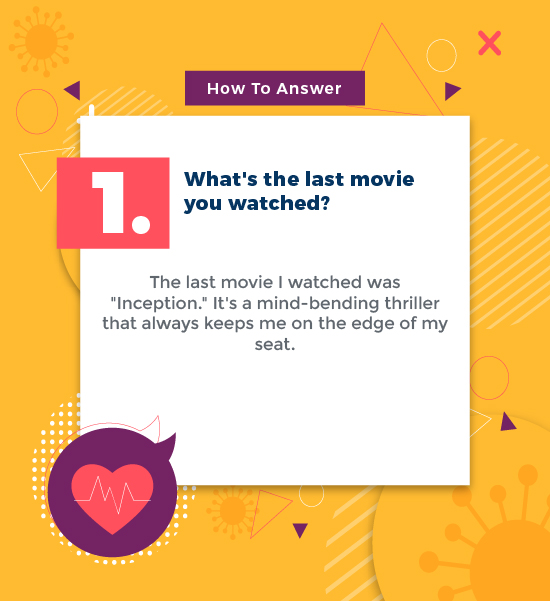
Engaging Movie Conversation Questions Sample
- Engaging Point: This question invites participants to explore their fantasy world, allowing them to connect with their favorite characters on a personal level.
- Engaging Point: By encouraging participants to play the role of a director, this question sparks creativity and ignites intriguing discussions about storylines, genres, and themes.
- Engaging Point: This question prompts participants to think critically about storytelling choices and envision alternative scenarios, fueling thought-provoking conversations.
- Engaging Point: This question taps into emotional connections people have with movies and triggers discussions about how films evoke seasonal sentiments.
- Engaging Point: Fusing imagination and storytelling, this question sets the stage for playful conversations about unlikely character interactions and dynamics.
- Engaging Point: Participants get the chance to be movie aficionados, sharing their unique discoveries and potentially introducing others to cinematic treasures.
Short Movie Conversation Questions Examples
- What’s your go-to movie snack?
- Do you prefer suspenseful thrillers or heartwarming comedies?
- Black and white classics or vibrant modern films?
- Which movie soundtrack is permanently etched in your mind?
- Subtitles or dubbed versions?
- Share a film that left you with a cliffhanger ending.
- Who would you cast to play your life’s movie protagonist?
- One-word description for your movie taste?
- Have you ever walked out of a movie theater because the film was that bad?
- Share a film that vividly portrays a specific era or time period.
Film Conversation Questions
- What role does cinematography play in conveying emotions in a movie?
- Discuss the impact of film scores on enhancing the viewing experience.
- How does the cultural background of a filmmaker influence their work?
- Explore the connection between a movie’s setting and its overall atmosphere.
- Analyze the role of symbolism in movies and its effects on storytelling.
- What distinguishes a great screenplay from a mediocre one?
- Share your thoughts on the significance of sequels and reboots in the film industry.
- Delve into the portrayal of gender roles in movies over the decades.
- How have advancements in technology transformed filmmaking techniques?
- Discuss the role of film festivals in promoting lesser-known cinematic gems.
Cinema Conversation Questions
- How does watching a movie in a theater differ from streaming at home?
- Explore the influence of international cinema on mainstream Hollywood films.
- Discuss the evolution of film censorship and its impact on storytelling.
- What’s your opinion on the shift from practical effects to CGI in modern cinema?
- How do film adaptations contribute to the popularity of literary works?
- Analyze the role of film critics in shaping public perception of movies.
- Explore the phenomenon of fan theories and their impact on movie discussions.
- Delve into the concept of “auteur” filmmakers and their signature styles.
- Discuss the significance of film preservation in maintaining cultural heritage.
- How has the rise of streaming platforms transformed the cinematic landscape?
Best Movie Conversation Starters
- “If you were a movie director, what genre would your debut film belong to?”
- “Do you think movies have the power to change societal perspectives?”
- “Share a movie that you believe everyone should watch at least once in their lifetime.”
- “Imagine a crossover between two of your favorite movies. How would the story unfold?”
- “Discuss a film that left you pondering its message long after watching.”
- “If your life had a movie title, what would it be?”
- “What’s the most heartwarming movie moment you’ve ever witnessed?”
- “Share a movie-related memory that holds a special place in your heart.”
- “If you could invite any movie character to dinner, who would it be and why?”
- “What’s the weirdest or most unexpected plot twist you’ve encountered in a movie?”
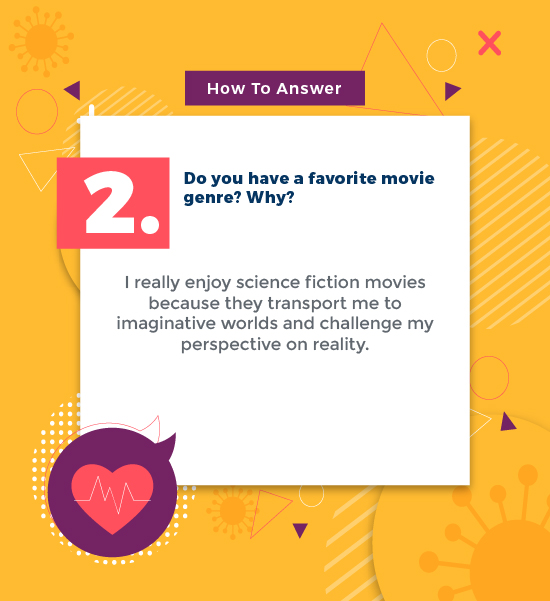
Top Movie Conversation Topics with Examples
- Discuss the progress made in recent years regarding diverse and inclusive portrayals of characters in movies.
- Explore the pros and cons of remaking classic films for modern audiences.
- Analyze how movies can shape cultural norms and impact social perceptions.
- Delve into the techniques filmmakers use to craft compelling narratives that resonate with audiences.
- Examine how movies serve as a means of escaping reality and providing comfort in challenging times.
- Discuss how technological advancements have revolutionized special effects, cinematography, and overall movie production.
- Take a journey through different film eras and explore how genres have evolved over time.
- Explore the significance of film festivals in recognizing cinematic achievements and promoting emerging talent.
- Dive into the phenomenon of interconnected cinematic universes and the popularity of film franchises.
- Discuss the unique styles and influences of renowned directors on their films’ storytelling and visual aesthetics.
Ways To Start a Movie Conversation
- Share your favorite movie genre and ask the other person about theirs. For instance, “I’m a huge fan of sci-fi movies. What about you? Do you have a favorite genre?”
- Mention a movie you recently watched and inquire if they’ve seen it or have any recommendations. For example, “I just watched ‘Inception’ last night. Have you seen it? Any thoughts on it?”
- Tap into nostalgia by asking about their earliest movie memories. Try, “Do you remember the first movie you watched in a theater? What was it like for you?”
- Pick a memorable movie character to discuss. Initiate with, “If you could spend a day with any movie character, who would it be and what would you do together?”
- Use a famous movie quote to kick off a conversation. Start with, “Here’s looking at you, kid.” Can you guess which movie that’s from? What are some of your favorite movie quotes?”
Movies, with their captivating stories and visual splendor, provide the perfect backdrop for engaging conversations. From discussing favorite genres to analyzing the art of filmmaking, the world of cinema offers a plethora of topics to explore. Whether you’re bonding over a shared love for classics or debating the impact of special effects, these conversation questions are your ticket to meaningful dialogues. So, the next time you’re looking to strike up a fascinating conversation, remember that the reel world has just the right script for you. Lights out, conversation on, and let the cinematic discussions begin!
Ready to dive into the magic of movies? Share your favorite film in the comments below and let’s start a reel-worthy conversation!
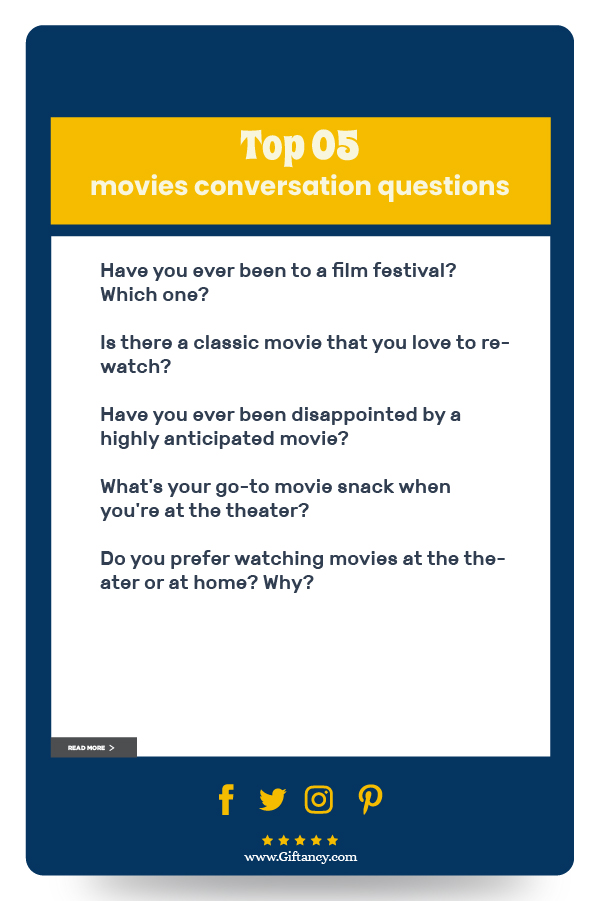
Leave a Comment Cancel reply
Save my name, email, and website in this browser for the next time I comment.
Improve your English. Speak with confidence!
- Free Mini Course

- Posted in in ESL Conversation Questions
45 movie questions to start a conversation
- Posted by by Cameron Smith
- February 12, 2023
- Updated April 20, 2023
This list of movie questions won’t just improve your English speaking skills. It will help you spark some engaging and thoughtful discussions with the people in your life.
Movies are one of the most popular ESL discussion topics for English learners. After all, there’s a reason American film critic David Ansen once famously said: “We are the movies and the movies are us.”
So find a conversation partner, choose your favorite ESL conversation questions from the list below, and explore every aspect of the moviemaking, moviegoing, and movie-viewing experience.
List of movie questions
- What is the best movie you have seen recently?
- What movie never fails to make you happy?
- Have you ever seen a movie that made you cry?
- What is your favorite movie of all time?
- Is there a specific film that everyone loves, but you can’t stand?
- What is your favorite movie genre ?
- Is there a film genre that everyone loves, but you can’t stand ?
- Why do certain genres of films appeal to you more than others?
- Who is your favorite actor or actress?
- Do you prefer going to the cinema or watching movies at home?
- What was the last movie you watched in theaters?
- What has been your favorite moviegoing experience?
- Do you like watching foreign films?
- Do you watch foreign films in their original language, or dubbed in your native language?
- What do you think of remakes of classic films?
- What are some great movies to watch with friends?
- What do you think makes a great movie?
- Would you rather watch a classic film or a modern one?
- What is the most underrated movie you have watched?
- Do you like watching movies based on true stories?
- How do you feel about film adaptations of books?
- Do you like watching films with a lot of special effects or films that rely more on the story?
- Have you ever seen a movie that made you laugh out loud?
- Have you ever seen a movie so bad it was good?
- What is the most memorable scene from a movie for you?
- Would you rather watch an old classic movie or the latest blockbuster release?
- Do you like watching movies in 3D?
- Do you prefer animated films or live-action films?
- What is the best movie soundtrack you have ever heard?
- Would you rather watch a movie with friends or alone?
- Are there any movie characters that you identify with?
- Do you feel that some movies are overhyped before their release?
- Can you think of an example where a movie sequel was better than the first film?
- Are there any movies that scared you so much that you had to turn them off early?
- Have you ever seen a movie so good it made you want to watch it again immediately after it ended?
- What do you think makes a great villain in a movie?
- Do you like watching movies based on real-life events?
- What do you think of movie remakes compared to the original films?
- What is your favorite movie series or film franchise ?
- What do you think of movie franchises and their spin-offs ?
- Have you ever seen a movie adaptation of a book that was better than the book itself?
- Have you ever seen a movie that made you think deeply about life?
- Are there any actors or actresses that you always enjoy seeing in films?
- Do you have any favorite quotes from movies that have stayed with you?
- If you could star in any movie, what movie would it be?
Get free English lessons via email
Subscribe to my newsletter and get English lessons & helpful resources once a week!
Unsubscribe anytime. For more details, review our Privacy Policy .
I agree to receive updates & promotions.
You have successfully joined our subscriber list.
Cameron Smith
I'm an English Communication Coach based in Vancouver, Canada. I'm on a mission to help millions of people speak English with confidence. Thanks for visiting this site! If you want longer video content, please follow me on YouTube for fun English lessons and helpful learning resources!
Post navigation

46 ESL conversation questions about the environment

30 simple future questions to practice your English
- April 7, 2023
Leave a Reply Cancel reply
Your email address will not be published. Required fields are marked *
Save my name, email, and website in this browser for the next time I comment.
You are using an outdated browser. Please upgrade your browser or activate Google Chrome Frame to improve your experience.
Talking About Movies in English: Essential Vocabulary, Questions and More
Are you a big fan of watching movies? Have you discovered the power of learning English through movies ? Do you want to talk about all the great movies you watch with your English-speaking friends, but you don’t know where to start?
Movies are a great topic to help you start using all the grammar and vocabulary you’ve been working so hard to learn.
I’m going to give you the vocabulary you need to sharpen your English speaking skills and ask questions, as well as give your opinion about movies. You can use these words and phrases with your English speaking friends, your language partner, with colleagues at a work event or even in your English class.
Tips for Talking About Movies
Essential vocabulary to know and use, movie genres, types of movies, descriptive words, questions and answers to keep the conversation going, have you seen any good movies lately, did you like it, what did you think about the movie, what was it about, what else would you recommend, resources for talking about movies, and one more thing....
Download: This blog post is available as a convenient and portable PDF that you can take anywhere. Click here to get a copy. (Download)
- Prepare what you want to say. As you watch a movie, think about the questions in this post during the film. Take notes after (or during) the movie to answer the questions so that when you find yourself in a discussion about films, you’re prepared.
- Talk about the different parts of a movie. Apart from the plot (what the movie is about), you can also talk about the actors you like, the cinematography (artistic visual aspects), the director, etc. You can even compare the movie you’re watching to other movies you’ve seen that are similar. For example, I prefer “The Lord of the Rings” over “Harry Potter.”
- Don’t spoil the ending. When you’re talking about movies, don’t say what happens at the end! Your speaking partner might want to go see the movie and be surprised or entertained like you were. So please don’t spoil it by telling them the ending, even if you’re excited!
- Keep it simple and brief. You only have to speak a couple of sentences when someone asks you a question. And remember that asking questions is also part of the art of conversation. So listen, ask questions and keep your answers short.
Spell-binding, Magical, Must-see: How to Really Talk About Movies in English
Let’s start by talking about some words that are important to understand (and use) in your conversations about the movies you like (or don’t like).
Was the last movie you saw an action movie or a romantic comedy? Be specific in your description by using the vocabulary below!
- Action — Movies made with fighting, chasing, arguing and violence in general. (Examples: “Indiana Jones, “Lethal Weapon,” “Mission Impossible”)
- Animated — Movies that are drawn and made into cartoons. (Examples: “Finding Nemo,” “Up” and other Disney and Pixar movies)
- Comedy — Movies that make you laugh. (Examples: “The Hangover,” “Blazing Saddles,” “Annie Hall”)
- Documentary — Movies made to inform you about a specific issue using interviews, facts and other journalistic techniques. (Examples: “Food, Inc.,” “An Inconvenient Truth,” “13th”)
- Drama — Movies that are serious, sad and that are usually about a specific issue or romance. (Examples: “Precious,” “Crash,” “Good Will Hunting”)
- Historical — Usually dramatic, these movies are made to show a specific time period. (Examples: “12 Years a Slave,” “Titanic,” “Hurt Locker”)
- Horror — Movies that are scary or “gory,” and that’s filled with blood and violence. (Examples: “The Shining,” “The Silence of the Lambs,” “Saw”)
- Independent (Indie) films — Movies that were not made by big, Hollywood studios or are more artistic in terms of theme and visuals. (Example: “Lost in Translation,” “Memento,” “Eternal Sunshine of the Spotless Mind”)
- Thriller — These movies are like horror movies, but they’re more “psychologically” scary. (Examples: “Don’t Breathe,” “American Psycho,” “Seven”)
- Romantic comedy (sometimes referred to as “rom-com”) — Movies about romance that are made to be fun and light-hearted or not very serious. (Examples: “The Wedding Planner,” “How to Lose a Guy in 10 Days,” “Valentine’s Day”)
- Science fiction — Or “sci-fi,” this genre is usually set in the future and has characters who are extraterrestrials or aliens. (Examples: “Star Trek,” “Interstellar,” “Star Wars”)
We want you to be prepared when you hear these words! They pop up from time to time and can change someone’s description of the movie. For example, you might hear, “The film was a remake of the original 1960 movie, but I liked it much better!
- Sequel — The second part of a pair of movies or a movie that continues the same story as another movie that came before it. (Examples: “Spider-Man 2,” “Toy Story 2,” “Terminator 2: Judgment Day”)
- Trilogy — A series of movies with three parts. (Examples: “The Lord of the Rings,” “The Matrix,” “The Godfather”)
- New release — Movies that are showing in movie theaters right now.
- Remakes — Notice the prefix “re” which means “again,” and the verb “make.” Literally, this word means “to make again.” These are movies that have been made before and are recreated, but with some updates. Many movies nowadays are remakes. (Examples: “Charlie and the Chocolate Factory,” “The Departed,” “The Magnificent 7”)
Sometimes the words “good” and “bad” just are not enough to describe a film. Here are some words you might find useful when you’re trying to tell someone about the film:
- Some synonyms for “bad” — awful, terrible, boring, predictable, overrated
- Some synonyms for “good” — great, well done, awesome, important, entertaining, informative
- Some synonyms to be neutral about a movie — alright, okay, so-so, not my favorite
A few other useful description words:
- Award-winning — A movie that has won an award like an Oscar or a Golden Globe.
- Family-friendly — Films that are good for families to watch together (no explicit material).
- Critically-acclaimed — If you hear this, it means critics gave the movie good reviews.
- Visually-stunning — A movie that’s beautiful to watch.
You can have a conversation about movies by asking and answering questions using the vocabulary we talked about. Let’s look at some common questions and answers people use when they talk about movies.
This question is asking about the movies you’ve seen in the past days, weeks or even months. You can talk about the last movie you saw or any other movies you saw recently.
Here are some examples of how you can answer:
- Yes, I’ve been really into short films.
- Yes, I just saw the new Leonardo DiCaprio film.
- No, not really. I prefer watching TV.
- No, I’ve been pretty busy with work. Have you?
Notice the structure of some of the sentences: yes/no + subject + have/has + past participle of the verb.
This is a yes or no question, which means you’ll start your answer with either “yes” or “no.” And since the question is in the past tense, you should answer the question with the past tense. Here are some example answers:
- Yeah, I liked it.
- No, I didn’t like it very much.
Remember that “like” is a transitive verb, which means you must use a direct object with the verb.
You cannot say, “Yes, I like.” It must be “Yes, I liked it,” or “Yes, I liked the movie.” “It” and “the movie” are the direct objects.
This question is asking for your opinion about that movie. It’s an example of a Wh question , also called an “open question.” You can begin to answer the question by using these phrases:
- I thought that…
- I felt like…
- It was + adjective from above
- In my opinion…
Here’s an example of an opinion about the short, critically-acclaimed movie “Blind Vaysha.”
I thought that the movie was well done. The way the director used animation and paintings made the movie visually-stunning. I felt like the music added a lot of emotion to the movie, too. It was quite interesting.
You can continue the conversation by asking the person you’re speaking with the same question. For example, “What about you? What did you think? Did you like it?”
This question is asking about the topic or what happened in the movie. When you talk about what happened in the movie, remember not to say the ending!
You can answer this question in two ways, depending on how you want to answer the question.
- Describe what happened. For this, you can use the present simple to emphasize the action in the story. Here’s an example of how to answer it using “Blind Vayasha.”
There is a girl who sees only the past through one eye and the future through the other. She can’t see the present moment. The movie shows her troubles.
- Describe the topic. To talk about the themes of the movie, you can describe the main ideas of the movie as well as your own interpretation. Here’s an example using the past simple (though you can also use the present simple).
The movie was about a girl who saw only the past through one eye and only the future through the other. But I actually think it was commenting on our society today and how we don’t take the time to be present in the moment.
In a conversation about movies, answer this question by telling your speaking partner what other movies you think they should see.
Or you can ask this question if you’d like to know what movies they think would be good for you.
Here are some examples of how you can answer this question:
- Since you liked “Blind Vayasha,” I’d recommend “Waking Life.”
- Give “Castaway” a try.
- If you liked “Memento,” I think you’d really like “Eternal Sunshine of the Spotless Mind.”
- I don’t know. If you don’t like war movies, you might not like “Hurt Locker.”
Here are some resources you can go to if you want to keep your conversation on new movies fresh.
- Rotten Tomatoes — A website that reviews all types of movies, including new releases.
- The Oscars — This year’s movies that The Academy of Motion Picture Arts and Sciences recognize as the best movies.
- Sundance Institute — An organization that highlights independent movie makers.
- IMDb — A website that gives you information about almost every movie ever made, including less-known or independent/student movies.
- Netflix — A website where you can stream movies for a monthly subscription fee. Try choosing a new movie every week or so that you always have something to talk about.
- FluentU — A language learning program that uses native English videos like movie clips and trailers to teach the language. This tool is useful if you struggle to understand the English used in movies.
Now you have all the vocabulary, questions and answers to help you get through a conversation about movies!
Remember to start by thinking about the questions while you’re watching that awesome action flick. You’ll be speaking fluently in no time!
If you like learning English through movies and online media, you should also check out FluentU. FluentU lets you learn English from popular talk shows, catchy music videos and funny commercials , as you can see here:

If you want to watch it, the FluentU app has probably got it.
The FluentU app and website makes it really easy to watch English videos. There are captions that are interactive. That means you can tap on any word to see an image, definition, and useful examples.

FluentU lets you learn engaging content with world famous celebrities.
For example, when you tap on the word "searching," you see this:

FluentU lets you tap to look up any word.
Learn all the vocabulary in any video with quizzes. Swipe left or right to see more examples for the word you’re learning.

FluentU helps you learn fast with useful questions and multiple examples. Learn more.
The best part? FluentU remembers the vocabulary that you’re learning. It gives you extra practice with difficult words—and reminds you when it’s time to review what you’ve learned. You have a truly personalized experience.
Start using the FluentU website on your computer or tablet or, better yet, download the FluentU app from the iTunes or Google Play store. Click here to take advantage of our current sale! (Expires at the end of this month.)
Enter your e-mail address to get your free PDF!
We hate SPAM and promise to keep your email address safe

There is NO AI content on this website. All content on this TeachWithMovies.org has been written by human beings.

- FOR TEACHERS
- FOR PARENTS
- FOR HOME SCHOOL
- TESTIMONIALS
- SOCIAL MEDIA
- DMCA COMPLIANCE
- GRATUITOUS VIOLENCE
- MOVIES IN THE CLASSROOM
- PRIVACY POLICY
- U.S. HISTORY
- WORLD HISTORY
- SUBJECT MATTER
- APPROPRIATE AGE LEVEL
- MORAL/ETHICAL EMPHASIS
- SOCIAL-EMOTIONAL LEARNING
- SNIPPETS & SHORT SUBJECTS
- MOVIES BY THE CALENDAR
- DOCUMENTARIES & NON-FICTION
- TALKING AND PLAYING WITH MOVIES: AGES 3-8
- TWM’S BEST TEACHING FILMS
- TALKING AND PLAYING WITH MOVIES
- SET-UP-THE-SUB
- ARTICLES & STUDENT HANDOUTS
- MOVIE PERMISSION SLIP
- MOVIE & TELEVISION WORKSHEETS
- MATHEMATICS
- EARTH SCIENCE
ANY FILM THAT IS A WORK OF FICTION
- FILM ADAPTATIONS OF NOVELS, SHORT STORIES, OR PLAYS
- ANY FILM THAT IS A DOCUMENTARY
- ANY FILM THAT EXPLORES ETHICAL ISSUES
- ADAPTATION OF A NOVEL
- DOCUMENTARIES
- HERO’S JOURNEY
- SCIENCE FICTION
- WORK OF FICTION
- WORK OF HISTORICAL FICTION
- PERSUASIVE DOCUMENTARY
- FICTION (SOAPS, DRAMAS, AND REALITY/SURVIVAL SHOW)
- HISTORICAL FICTION
- INFORMATIONAL DOCUMENTARY
- NEWS AND CURRENT EVENTS
- SEARCH [Custom]
DISCUSSION QUESTIONS FOR USE WITH
Select the questions that will work best with your students and promote your educational goals.
Table of Contents
Simulating Student Interest Focusing on Empathic Reactions Characterization
Plot Themes, Messages & Ideas Other Literary Elements
Theatrical Devices and Effects Cinematic Devices and Effects Foreign Films
Questions to Stimulate Student Interest -- Get them Talking and Thinking
- Did you learn anything from this movie? If you did, what was it?
- What is the message of this movie? Do you agree or disagree with it?
- Was there something you didn’t understand about the film? What was that?
- What did you like best about the movie? Why?
- What did you like least about the film? Why?
- Who was your favorite character in the movie? Why?
- Who was your least favorite character in the film? Why?
- Did anything that happened in this movie remind you of something that has occurred in your own life or that you have seen occur to others?
- What were you thinking as you finished watching the film?
- Would you recommend this movie to a friend? Explain your reasons.
- What part of the story told by the movie was the most powerful? Why?
- If you had a chance to ask a character in this movie a question, what would it be?
- If you had a chance to ask the screenwriter a question, what would it be?
- If you were writing the screenplay for this movie, would you have changed the ending? Explain your answer.
- What feelings did you share with any of the characters in the movie?
- Did any of the characters in this movie make you angry? Tell us why.
- Did you come to respect any of the characters in this movie? Who was it and why did you come to respect that character?
- If a psychologist were to look at the actions of [select a character] what do you think the psychologist would say about that character? Describe specific statements or actions that you think the psychologist would be interested in and the conclusions that you think the psychologist would draw from those statements or actions.
- If a priest, minister, or rabbi were to look at the actions of [select a character] what do you think the priest, minister, or rabbi would say about them? Describe specific statements or actions that you think the priest, minister or rabbi would be interested in and the conclusions that you think he or she would draw from those statements or actions.
- What comment is the author trying to make about the culture of the characters in this story?
Empathetic Reaction Discussion Questions:
1. In what ways are the characteristics of the protagonist like your own or those of someone you know?
2. In what ways are the characteristics of the antagonist like your own or those of someone you know?
3. Is the problem to be solved in the film that can be seen in the struggle of the protagonist against the antagonist familiar to you in any way? If so, describe the similarities and differences.
4. What details in the setting of the film are similar to the setting in which you live or in various places you have been? What are those similarities and what are the differences?
5. The problems faced by the protagonist sometimes stray from the central conflict in the film. Describe these problems and show how they are familiar to the problems you or someone you know must face.
6. The personal qualities that help the protagonist solve his or her problem are often a part of the lesson to be learned in the film. What are these qualities and where have you seen them in your own experience, either in your own behavior or in behavior of someone you know?
7. Complications come along and make problem solving more difficult. What complications does the film’s protagonist face that are similar to those you may have faced in your various struggles? What are they, and what are their similarities and differences?
8. Depth of feeling is what makes a film worth watching. Of the many feelings expressed in the film, with which are you most familiar?
9. The resolution to the problem in the film can be satisfying or disheartening. Think about how some of your own problems have been resolved; write about a time when the solution was satisfying and write about a time when the solution was disheartening.
10. The resolution of the film teaches a lesson. How can you apply the lesson in the film to your own life?
11. What was the strongest emotion that you felt when watching the film?
12. Which character did you [admire, hate, love, pity] the most? What was it about that character that caused you to have that reaction?
Questions Concerning Characterization
Note: In some of the questions we have used the term “major characters.” Before asking the questions, have the class identify the major characters. In addition, these questions can also be limited to one or more characters.
Characterization is delineated through (1) the character’s thoughts, words, speech patterns, and actions; (2) the narrator’s description; and (3) the thoughts, words, and actions of other characters. When students analyze character, they should be reminded to have these three sources in mind. Adapted from California English-Language Arts Content Standards – Grade 7, Reading 3.3
1. How are the major characters introduced? What does this tell us about what will happen in the story?
2. [Select an action performed by one of the characters. Then ask.] Explain why [name of character] took [describe the action] . What motivated him or her? [You can then ask:] What did this motivation have to do with the theme of the film?
3. The characters must be credible; how they act and what they say must make sense. What aspects of the personalities of the major characters in this story affect their credibility?
4. Is there consistency in the characters throughout the story? Do their actions follow their natures and ring true?
5. What motivates the major characters? Are their motivations or wants explained outright or revealed over time?
6. Subconscious motives are often the most powerful causes of human behavior. Are there any major characters who act on motives of which they are not aware? Describe any unconscious motives of the major characters and explain how these motives affect the actions of those characters.
7. Are there any relationships between various characters, be they friends, lovers, co-workers, or family members, that are important to the story? If so, describe the relationships that you believe contribute to the story and how those relationships advance the action of the story.
8. What motivates the protagonist in his or her struggle against the antagonist?
9. How does the protagonist work against the antagonist? Recount one specific episode in this struggle.
10. What motivates the antagonist to resist or struggle against the protagonist?
11. How does the antagonist resist or struggle against the protagonist? Recount one specific episode in this struggle.
12. In what ways are the characters’ actions driven by the values endorsed or criticized in the story or by ideas presented by the story?
13. What role does the back-story play in explaining the actions of the major characters? Explain your reasoning.
14. Is there any information known to the audience that is being held back from any of the characters? If there is a hesitation in revealing information to characters, describe it and explain how things change once this information becomes known to those characters.
15. Are there any transformations or changes that occur over the course of the story in any of the major characters? For each transformation or change, describe how it comes about and how it relates to the story’s themes or ideas.
16. When you compare and contrast the protagonist and the antagonist, do you find any similarities between them? Describe these similarities and how they relate to the plot and to the values and ideas presented in the story.
17. When you compare and contrast the protagonist and the antagonist, do you find any important differences between them? Describe these differences and how they relate to the plot and to the values and ideas presented in the story.
18. Are there any reversals of roles played by characters or sudden important changes of circumstances through the course of the story? If there are, how do these reversals illuminate character or lead to changes in character?
19. Which aspects of the protagonist’s personality lead to the resolution of the conflict in the story? Describe them and their effect on the resolution.
20. As the story progresses toward a conclusion, internal as well as external conflicts suffered by the major characters are resolved. Select one of the major characters and describe his or her internal and external conflicts. In addition, tell us how the character’s choices lead to a resolution of these conflicts.
This question can be modified by naming the character which is the subject of the question.
21. Some of the names used in this story tell us something about the characters. What do they tell us?
Questions Focusing on Plot
1. The middle of the story presents ascending difficulties, referred to as complications, which increase the tension and the need for a resolution. Describe one of the story’s complications and show how it serves to push the characters toward more intense action.
2. One way to examine plot is to determine what type of conflict it entails. The classic divisions are: (1) person vs. person; (2) person vs. society, (3) person vs. nature, and (4) person vs. self. Often, more than one of these types of conflict occurs in a story. Using this analysis, briefly describe the conflicts in this story and classify it according to the categories set out above.
3. In terms of rising action, climax, and falling action, describe the structure of the plot, stating when the action stops rising and reaches a climax and begins to fall.
4. Often the central problem in a story transcends the characters; these persons are simply the tools used to resolve the problem. In this story, is there a problem that transcends character and how is it manifested?
5. What instability is there early in the story that is resolved and becomes stable by the end?
6. The action in the story must be believable. Detail a particular event or action that causes another event or has an important effect on a character or a relationship between characters. Describe how this event or action moves the story forward.
7. Is there a back-story, and if there is, how does it advance the main plot?
8. What is the key moment in the story, the scene which brings illumination or an “ah-ha” moment?
9. Although incidents in the story usually return to the main conflict, they often reveal a pattern related to the ideas in the story. This pattern causes the viewers to focus sharply on the story itself. What pattern can be seen in the story?
10. How does the progress of the pattern identified in the story reveal change or growth in the characters?
11. What is the moment of climax, the moment of highest tension, when the solution to the problem is now in sight?
12. The film’s denouement establishes a sense of stability. What happens in this section of the story?
Questions About Themes, Messages, and Ideas
1. The significance of the story is determined by the power of its comment on the human condition. What comment is being made in this movie about what it is to be human?
2. The theme of a story is the general idea or insight about life expressed by the author. Theme is a universal and meaningful concept that emerges from the characters’ actions and from the outcomes of conflicts described in the story. Theme is often thought of as the lesson that the author is trying to teach the reader or audience. More than one theme can be included in a work of fiction; however, there is usually one primary theme that ties together all of the elements of a story. Usually, a theme can be expressed in one sentence. What is the primary or central theme of this story? Use one sentence to describe it.
3. Describe any other themes that you see in this story.
[This question is designed to be asked after question #2.]
4. What themes emerge from the back-story and how do they relate to the theme of the main story?
5. Many stories explore important social or political issues. Describe any specific social or political issues that affect the story. How do these issues impact characters and influence theme?
6. What life lessons can be learned from the choices made by the characters in this story?
[This question can be limited to one particular character.]
7. The conclusion of the story suggests a solution to the conflict that can be applied to the human condition in general. What values or principles that inform the actions of the characters can help people resolve their own life’s conflicts?
8. How does the changing consciousness, the developing awareness of the major characters, affect the story and help the audience discover theme? Explain these shifts in thinking.
[Try modifying the question by naming the character or a group of characters.]
9. Although often considered an artistic flaw, a story can be didactic in that it teaches the viewers how to achieve an end presented as worthy. Explain the use of didacticism in this story and evaluate its success in illuminating an important idea.
10. What are the most dramatic issues relevant to our time that have been presented in this story? Describe the presentation of one such issue and show how it relates to the times in which we now live.
11. Stories can be persuasive. Show how the movie attempts to persuade viewers to accept the particular values or principles that the writers intended to promote.
Questions About Other Literary Elements
1. What is the tone or mood of the story?
2. How does the tone help guide the viewers into an empathic reaction to the story? Explain and give examples of both the tone and the empathy felt by the audience.
3. Evaluate the pacing in the story and how it affects other elements of the story such as theme.
4. What elements of irony exist in the story? How do they serve to move the story forward and how do they assist in illuminating the story’s theme?
5. Stories can be told from the following points of view: first person, third person objective, third person limited, and third person omniscient. From whose point of view is the story told? Explain how the chosen point of view affects the way the story is told.
6. Is the point of view from which the story is told the best choice that the storyteller could have made? Argue your point.
7. A symbol in a story is an object, an animal, a person, an action, or an event that stands not only for itself, but also for something else. Symbols are of two types. Conventional symbols have a widely accepted meaning outside of the story. Examples are a nation’s flag, a crucifix, a Star of David, or a nation’s flag. Other conventional symbols reinforce meaning by reference to a culturally shared conception of the object, animal, action, or event. For example, rain is often a symbol of life or fertility. The fact that a story is set in the spring can serve as a symbol for renewed life or purpose. Other symbols have meaning only within the story. These are called contextual symbols. They usually have no special meaning except within the context of the story. Symbols keep their meaning as an object, animal, person or event, but within the story, they also suggest something else. Describe the symbols used in this story, both those that have meaning outside of the story and those which have meaning only within the story. What does each stand for?
[This question can be modified by naming one or several symbols as the subject for analysis.]
8. Evaluate the story’s use of coincidence, if any. Was the audience prepared for the coincidence or was it off the wall and therefore considered a flaw in the story?
9. The conflict in this film is resolved when one of the characters unexpectedly gets very lucky. Did this sudden event ring true or did it make the story seem less credible?
10. The conflict in this film is resolved when one of the characters unexpectedly suffers some very bad luck. Did this sudden event ring true or did it make the story seem less credible?
11. Explain how the use of flashback in the story provides significant information and served to move the action forward.
12. Find examples of both foreshadowing and echoing in the story and indicate how the use of these devices lead to increased coherence.
13. Does the story include elements of allegory? Explain why you think it is an allegory.
14. Is this story a parable? If so, explain why you think it is a parable.
15. The setting of a story includes the time at which the action of the story occurs and the physical location or locations where it occurs. Settings must be recognizable and have a relationship to the meaning of the story. What is the setting of this story and what are the ways in which the setting contributes to the story being told? Could this story be told in any other time or place?
16. When does the expository phase in this story end? By the end of the expository phase, what have we learned about the characters and the conflict?
17. An allusion is a reference to something outside of the story about which the audience will be familiar. Stories often include allusions to historical, scientific or cultural points of interest. Describe an allusion that you noticed in the story and explain its relationship to the story as a whole.
If the story is rich in allusions, increase the number of allusions that the student must discuss. An alternative question would be to briefly describe an allusion from the story and ask students to explain its meaning and relationship to the story as a whole.
18. Did the film resort to the use of gratuitous violence, explicit portrayals of sexual encounters, or excessive profanity? If it did, how did these scenes affect the story told by the movie?
19. Did the film strain to achieve an emotional pitch? Did it exhibit sentimentality for which there was little or no justification? Which scenes? How could this flaw have been remedied?
20. The action in some movies disturbs the unity of the story or confuses the viewers as to the intentions of the filmmakers. Very often these scenes are left on the cutting room floor but sometimes they remain in the film. Have you noticed such a scene in this movie? Is so, describe the scene and explain why you think it disturbs the unity of the story or confuses the viewers.
21. What does the title of the film refer to and how does it relate to the [insert the name of any literary element] of the film?
Questions Concerning Theatrical Devices and Effects
See Introducing Theatrical and Cinematic Technique . Questions 1, 3 and 4 can be asked with respect to an entire movie or limited to an appropriate scene. Question 2 can be asked of a specific character or a specific costume.
1. How do the sets contribute to the mood the filmmakers are trying to establish?
2. How do the costumes contribute to the image the filmmakers are trying to convey?
3. How does acting choice contribute to the story the filmmakers are trying to tell?
4. How do the props contribute to the image the filmmakers are trying to convey?
Questions on Cinematic Devices and Effects
See Introducing Theatrical and Cinematic Technique . Questions 1 – 3 can be asked with respect to an entire movie or an appropriate scene in a movie.
1. Identify one example of each of the following shots and describe how the shot affected the presentation of the story told by the film: close-up, medium shot, and long shot.
2. Identify one instance of each of the following types of shot angles that were used in this film and, for each, describe how the angle affected the presentation of the shot in which it occurs: low-angle, high-angle, eye-level.
3. Identify one instance of each of the following types of transitions from one shot to another that were used by the editors of this film and, for each, describe how the transition affected the presentation of the film: cut, fade, dissolve.
4. What is parallel editing, also called crosscutting, and what is it used for?
5. How did the editing of the film advance the story that the filmmakers were trying to tell? Explain how the editors achieved this effect.
6. What is point of view editing?
7. Describe the difference between long takes and short takes.
[Another way to ask this question is to show the class a short scene and ask the students to identify the short and long takes and discuss their use in the film.]
8. Analyze the use of music in the movie. Did it enhance the story that the filmmakers were trying to tell? How would you have used music in this movie?
9. Analyze the use of sound other than music in the movie. Did it enhance the story that the filmmakers were trying to tell? What sounds, other than music, would you have used to tell the story told by this movie?
10. Give examples from movies you have recently seen of diegetic sound, non-diegetic sound and internal diegetic sound. For each, describe why the scene qualifies as the particular type of movie sound.
11. What is the difference between “low-key lighting” and “high-key lighting” and what are their different uses in film?
12. What is the difference between “side lighting” and “front lighting” and what are their different uses in film?
13. Film is a composition of pictures rather than words, as one would find in a novel. Which specifically framed shots reveal something important to the story line? Describe the shot and explain its contribution to the story.
14. Describe the use of color in the film. Did it advance the emotions the filmmakers were trying to evoke? How would you have used color in the movie?
Additional Questions for Foreign Movies
Questions 1 – 3 may be expanded to more than one thing or aspect depending upon the film and the abilities of the class.
1. Describe one thing that was universal that you learned from the film.
2. Describe one thing that you learned about the culture of the country in which the film was set.
3. Describe one aspect of the artistry of the film.
4. How might a director from [name the country in which the class is held or a country that the class has studied] have approached the subject of the film?
5. How might a director from [name the country in which the class is held or a country that the class has studied] have approached [name one or more aspects of the film] differently? — In the alternatve: How would this story have been told from the point of view of another culture?
6. Is the story of this film unique to [name the culture of the story shown in the film], or could the story of this film have taken place in another country or setting?
Click here for Assignments, Projects, and Activities
Written by Mary RedClay and James Frieden .
Conversation Questions Movies

Interesting Conversation Questions About Movies

Asking about what movies someone likes or the latest movie they watched is a great way to start a conversation. But there are so many more questions about movies that you can ask to strike up a conversation. Below you’ll find 30 interesting conversation questions about the movies. If you want to download these questions as a printable PDF, you can do so at the bottom of the page.
Related: Conversation Questions About Music
Conversation Questions About Movies
- How often do you watch movies?
- What was the last movie you watched at the theater?
- Do you like superhero movies?
- What snacks do you like to eat while watching movies?
- Which movie actors/actresses do you like?
- What is the worst movie you have ever seen?
- Have you ever watched a movie more than once?
- Do movies ever make you cry?
- Do you like scary movies?
- Do you ever watch foreign language movies?
- Were movies better in the past?
- Who would play you in the movie of your life?
- What’s the most times you have watched a movie? Which movie was it?
- Do you think going to the movie theater is a good first date?
- What’s best? Watching a movie at home or at the movie theater?
- Do you prefer reading books or watching movies?
- What kinds of movie do you dislike?
- What’s the best documentary you have ever seen?
- Do you like animation movies?
- Have you ever walked out half way through a movie?
- What’s more important? Good special effects or or a good story?
- Are snacks too expensive at the movie theater?
- Have you ever downloaded a movie illegally?
- What is your first memory of watching a movie?
- What was the first movie you saw at the movie theater?
- Which movie has the best soundtrack?
- Can you watch horror movies at home on your own?
- What’s your favorite comedy movie?
- What’s the funniest movie scene of all time?
- Do you like movies with subtitles?

Download And Print
Download and print these questions about movies.

English Current
ESL Lesson Plans, Tests, & Ideas
- North American Idioms
- Business Idioms
- Idioms Quiz
- Idiom Requests
- Proverbs Quiz & List
- Phrasal Verbs Quiz
- Basic Phrasal Verbs
- North American Idioms App
- A(n)/The: Help Understanding Articles
- The First & Second Conditional
- The Difference between 'So' & 'Too'
- The Difference between 'a few/few/a little/little'
- The Difference between "Other" & "Another"
- Check Your Level
- English Vocabulary
- Verb Tenses (Intermediate)
- Articles (A, An, The) Exercises
- Prepositions Exercises
- Irregular Verb Exercises
- Gerunds & Infinitives Exercises
- Discussion Questions
- Speech Topics
- Argumentative Essay Topics
- Top-rated Lessons
- Intermediate
- Upper-Intermediate
- Reading Lessons
- View Topic List
- Expressions for Everyday Situations
- Travel Agency Activity
- Present Progressive with Mr. Bean
- Work-related Idioms
- Adjectives to Describe Employees
- Writing for Tone, Tact, and Diplomacy
- Speaking Tactfully
- Advice on Monetizing an ESL Website
- Teaching your First Conversation Class
- How to Teach English Conversation
- Teaching Different Levels
- Teaching Grammar in Conversation Class
- Members' Home
- Update Billing Info.
- Cancel Subscription
- North American Proverbs Quiz & List
- North American Idioms Quiz
- Idioms App (Android)
- 'Be used to'" / 'Use to' / 'Get used to'
- Ergative Verbs and the Passive Voice
- Keywords & Verb Tense Exercises
- Irregular Verb List & Exercises
- Non-Progressive (State) Verbs
- Present Perfect vs. Past Simple
- Present Simple vs. Present Progressive
- Past Perfect vs. Past Simple
- Subject Verb Agreement
- The Passive Voice
- Subject & Object Relative Pronouns
- Relative Pronouns Where/When/Whose
- Commas in Adjective Clauses
- A/An and Word Sounds
- 'The' with Names of Places
- Understanding English Articles
- Article Exercises (All Levels)
- Yes/No Questions
- Wh-Questions
- How far vs. How long
- Affect vs. Effect
- A few vs. few / a little vs. little
- Boring vs. Bored
- Compliment vs. Complement
- Die vs. Dead vs. Death
- Expect vs. Suspect
- Experiences vs. Experience
- Go home vs. Go to home
- Had better vs. have to/must
- Have to vs. Have got to
- I.e. vs. E.g.
- In accordance with vs. According to
- Lay vs. Lie
- Make vs. Do
- In the meantime vs. Meanwhile
- Need vs. Require
- Notice vs. Note
- 'Other' vs 'Another'
- Pain vs. Painful vs. In Pain
- Raise vs. Rise
- So vs. Such
- So vs. So that
- Some vs. Some of / Most vs. Most of
- Sometimes vs. Sometime
- Too vs. Either vs. Neither
- Weary vs. Wary
- Who vs. Whom
- While vs. During
- While vs. When
- Wish vs. Hope
- 10 Common Writing Mistakes
- 34 Common English Mistakes
- First & Second Conditionals
- Comparative & Superlative Adjectives
- Determiners: This/That/These/Those
- Check Your English Level
- Grammar Quiz (Advanced)
- Vocabulary Test - Multiple Questions
- Vocabulary Quiz - Choose the Word
- Verb Tense Review (Intermediate)
- Verb Tense Exercises (All Levels)
- Conjunction Exercises
- List of Topics
- Business English
- Games for the ESL Classroom
- Pronunciation
- Teaching Your First Conversation Class
- How to Teach English Conversation Class
Talking About Movies (Upper-Intermediate & Advanced ESL Lesson Plan)

Compelling Conversations: Chapter 19: Talking About Movies
This is a sample lesson plan taken from Compelling Conversations: Questions & Quotations on Timeless Topics. To view more sample chapters, please visit CompellingConversations.com . The book can be previewed and purchased on Amazon US & Amazon Europe . To download a printable version of this chapter, please click here: CC-Chapter19-Movies-Lesson-Plan.pdf
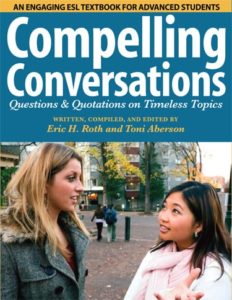
Movies Lesson Plan (ESL) - Chatting
You can also start a conversation by asking for movie suggestions. Talk with your partner, and share your movie experiences.
1. Do you like movies? Where do you usually see movies? 2. How often do you watch movies? At home? In theatres? 3. Where do you find movies to watch at home? Library? Cable? Blockbuster? Netflix? 4. Do you have cable television? Do you use on-demand features? 5. Do you own any movies? Which? Do you repeatedly watch them? 6. Have you figured out a way to see movies for free? How? 7. Can you compare movie houses in your homeland with theatres in the United States? 8. What might annoy you at a movie theatre? Using phones? Babies crying? Other? 9. Do you have a favorite movie theatre? A preferred place to sit? 10. Have you ever seen a celebrity or famous person? Where? Tell us about it 11. What movies have been blockbusters here? In your native country? 12. Can you think of some tourist sights related to the movie industry? 13. What movies have you seen that took place in Los Angeles? New York? Chicago? 14. Have you ever seen movies being filmed? Where? What was the atmosphere? 15. Have you ever acted in a play or movie? Can you describe your experience?
Movies Lesson Plan (ESL) - Vocabulary
- blockbuster = a movie or book that is a great commercial success
- famous = known by many people
- popular = liked by many people
- adapt = make sth suitable for a new use or purpose
- word of mouth = spoken language; ideas that spread among people through conversation
- cast = the actors in a play, movie, or production
- crush = a brief but intense infatuation with someone
- celebrity = a famous person
- director = a person who supervises the actors and staff for a movie
- genre = a category of art, film, etc.
- film noir = a style of film that is dark, negative, and pessimistic.
- animation = a technique of using drawing to create the appearance of movement in film
Movies Lesson Plan (ESL) - Movie Genres
1. Which types (genres) of movies do you enjoy most? Why? 2. Can you think of an example of a good movie in five different categories? 3. Can you think of an example of a bad movie in three categories? 4. What makes your favorite films special or memorable? 5. Name a few movies that you disliked. Why did you dislike them? 6. Can you think of some books that have been adapted into movies? Did the adaptations work? 7. Did you have a favorite movie as a child? Teenager? 8. Did you have a favorite star as a child or teenager? Who? Why? 9. Do you know anybody who had a “crush” on a famous actor or actress? 10. Have you ever seen a movie several times? Which? Why? 11. Do you have any favorite actors now? Why? Did they move you in any role? 12. What actors, actresses, or directors would you like to lunch with? 13. Do you have any favorite directors? Why? Which of that director's films touched you? 14. How do you decide which movie to see? Word of mouth? Ads? Awards? Reviews? 15. Which movies would you suggest a tourist to your country watch? Why? 16. What movies have you seen this year? Which do you recommend? 17. Do you think movies influence society or reflect society? How?
Movies Lesson Plan (ESL) - Quotations
Circle four quotes that appeal to you. Discuss your choices.
1. “Movies are a fad. Audiences really want to see live actors on a stage.” –Charlie Chaplin (1889—1977), British comedian and actor
2. “You know what your problem is? It's that you haven't seen enough movies—all of life's riddles are answered in the movies.” –Steve Martin (1945—), comedian
3. “I think nudity on screen is disgusting, shameful, and unpatriotic. But if I were twenty-two, with a great body, it would be artistic, tasteful, patriotic, and a progressive, religious experience.” –Shelly Winters (1920—2006), actress
4. “Watch this if you like, and if you don't, take a hike.” –Clint Eastwood (1930—), actor, director, and producer
5. “It's the movies that have really been running things in America ever since they were invented. They show you what to do, how to do it, when to do it, how to feel about it, and how to look how you feel about it.” –Andy Warhol (1928—1987), American artist
6. “We need families to start taking more responsibility in understanding which movie is good for their children and which movie is not.” –Jet Li (1963—), Chinese actor and martial artist
7. “Movies are fun, but they're not a cure for cancer.” –Warren Beatty (1937—), American actor, director, and producer
8. “I did a women's movie, and I'm not a woman. I did a gay movie, and I'm not gay. I learned as I went along.” –Ang Lee (1954—), film director born in Taiwan
9. “My movies were the kind they show in prisons and airplanes because nobody can leave.” –Burt Reynolds (1936—), American actor
10. “Acting is not an important job in the scheme of things. Plumbing is.” –Spencer Tracy (1900—1967), actor
11. “Maybe every other American movie shouldn't be based on a comic book.” –Bill Maher (1956—), American comedian
12. “Life is like a movie, write your own ending. Keep believing, keep pretending.” –Jim Henson (1936—1990), American creator of the Muppets
13. “The difference between life and the movies is that a script has to make sense, and life doesn't.” –Joseph L. Mankiewicz (1909—1993), American screenwriter
Movies lesson plan written by Eric Roth of CompellingConversations.com
12 comments on “ Talking About Movies (Upper-Intermediate & Advanced ESL Lesson Plan) ”
Thank you for posting and sharing this conversation lesson for readers!
I absolutely love these plans. Thank you for having these out here. It’s very much appreciated.
Thanks dude, excellent stuff as always! Keep it coming :)
Good plan & good organization of the lesson.
“The difference between life and the movies is that a script has to make sense, and life doesn’t”–Joseph L. Mankiewicz (1909—1993), American screenwriter
Enjoyed examining this, very good stuff, thankyou. Talk sense to a fool and he calls you foolish. by Euripides. fdcaggeddggeefea
Great stuff! Thanks for sharing your craft and material.
it’s really use full for me.thanks a lot.
Some great genres I never would have thought of! Thanks for sharing :) I have a free lesson plan on movies here if you would like to give it a whirl feel free to do so! http://yourenglishsource.com/movie-vocabulary/
Tht’s good ,,, i like that ,, thank u
Very helpful content and well-organized. I lead a drop-in ESL conversation group and this helped me prepare — FAST! Thank you
Thanks! Very useful!
Leave a Reply Cancel reply
Your email address will not be published. Required fields are marked *
- A Beginner’s Guide to IELTS
- Common Grammar Mistakes [for IELTS Writing Candidates]
Writing Correction Service
- Free IELTS Resources
- Practice Speaking Test
Select Page
Talking About Movies for IELTS
Posted by David S. Wills | Nov 28, 2017 | IELTS Tips , Speaking | 0
Because movies are a common part of life for most people, it is quite common for them to appear in the IELTS exam. It is very possible that you could be asked to talk about them in the speaking test, for example.
As such, in this lesson I am going to show you how to talk about movies by giving you some useful language for describing them. We’ll also look at sample questions from the IELTS exam.
You can learn about other common IELTS topics here .
Vocabulary about Movies
First of all, let’s look at some useful movie-related vocabulary. We will group it in different sets so that it is easier to learn.
Types of Movies
Let’s look at the different types of movies. These are called “genres.” (This is a French word, but it is commonly used by native speakers of English.)
- Documentary
- Romantic comedy (or “rom-com”)
- Science fiction
Note that there are other types of movies and of course some movies fall into more than one category. There are also various subgenres (meaning a specific type of film within a wider genre). The slasher and zombie genres above, for example, are part of the wider horror genre. In terms of comedies, we also have “dark comedy” and so on.
There’s a list of movie genres (and subgenres) on Wikipedia .
Describing Movies
It is not enough to just know the names of movie types. You should also be able to describe movies. That means you should be able to talk about them a little bit.
Here are some useful adjectives:
- Bone-chilling
- Captivating
- Challenging
- Educational
- Exhilarating
- Fascinating
- Frightening
- Informative
- Spine-tingling
You should choose a term that is appropriate and then use it to describe a type of movie that you want to discuss. For example:
- I like action films because they are exhilarating .
This could easily be used in the IELTS speaking test, combining a genre word with an example and an adjective to explain. Here’s a common part one question:
- A: What kind of movies do you like watching?
- B: I really like watching action movies like the Avengers because they are exhilarating .
You can avoid very common words like “funny” and “interesting” by upgrading them to more accurate synonyms:
- I recently saw a hilarious film!
- I watched a movie last weekend that was captivating .
Other Vocabulary
Try to avoid being formulaic with your language. Instead of just inserting lots of those adjectives, we can express ourselves in other ways. Instead of saying “funny” or “hilarious,” we could say:
- That movie made me laugh out loud!
- I just couldn’t stop laughing.
- It was really silly but I liked it a lot.
- Sometimes you just need a good laugh.
Likewise, when talking about documentaries, it is tempting to say they are “interesting” or “educational,” but we can say more:
- They teach us about our world.
- Documentaries open our eyes to important issues.
- I saw a documentary that really inspired me.
We can also go beyond just our personal feelings and describe the movies in slightly more objective ways. For example:
- Fantasy movies involve magic, supernatural events, and exotic worlds.
Here, I have explained what the movie contains. The word “involve” is very useful! Let’s see some other ways that we can include it:
- Comedies involve ridiculous situations and hilarious characters.
- Disaster movies involve lots of dramatic action and terrifying scenarios.
- Action movies involve incredible stunts and fast-paced action.

Film vs Movie
So far, I have talked about “movies” because this word is now more common, but in my country (the United Kingdom), we also say “film.” You can use either of these words in IELTS because they are both correct. However, be aware that if you travel to America you will more likely hear “movie” and in the UK you’ll more likely hear “film.”
Bonus: People in the UK talk about “going to the cinema” whilst in America people might say “going to the movie theatre.”
IELTS Speaking Questions about Movies
Here are some questions about movies that you may encounter in the IELTS speaking test.
- Do you like to watch films?
- How often do you go to a cinema or watch a movie?
- What was the first film that you watched?
- Do you prefer foreign films or local films?
- What genre of movies do you enjoy most?
- Which was the first movie that you watched?
- Which genre of movies do you try to avoid?
- What kind of movies did you like to watch when you were a child?
- Has your taste in films changed as you’ve got older?
Describe a film that you have recently seen. You should say: what the film was when and where you saw it what the film was about and explain how you felt about this film.
Describe your favourite movie. You should say: what the film is about who the characters are what message the movie gives and explain why you like it so much.
Describe a book or a film that had a strong impact on you. You should say: what was it when you read or saw it how it influenced you and say if you liked it and why.
- Do old people and young people like watching the same kinds of films?
- To what extent do you think films reflect real life?
- Do you think people will continue to go to the cinema in the future?
- Statistics show that visits to the cinema are up despite the availability of DVDs and online downloads. Why do you think this might be?
- What kinds of films are popular in your country?
- Why do you think some people prefer going to the cinema to watching films at home?
- What’s the difference between the movies or your country and Hollywood movies?
- What do you think of violent films?
- Why do you think people like watching films?
- Is cinema a popular form of entertainment in your country?
- Do you think films have changed since you were a child? How?
- As the technology for home viewing improves, do you think people will stop going to the cinema in future?
About The Author
David S. Wills
David S. Wills is the author of Scientologist! William S. Burroughs and the 'Weird Cult' and the founder/editor of Beatdom literary journal. He lives and works in rural Cambodia and loves to travel. He has worked as an IELTS tutor since 2010, has completed both TEFL and CELTA courses, and has a certificate from Cambridge for Teaching Writing. David has worked in many different countries, and for several years designed a writing course for the University of Worcester. In 2018, he wrote the popular IELTS handbook, Grammar for IELTS Writing and he has since written two other books about IELTS. His other IELTS website is called IELTS Teaching.
Related Posts
How to Get Band 8 in IELTS – Simple, Realistic Advice
November 30, 2020
How to Improve from Band 6.5 to 7 in IELTS
August 31, 2020
IELTS Reading Overview
March 17, 2017
Describe a Festival [IELTS Speaking Part 2]
September 19, 2020
Leave a reply Cancel reply
Your email address will not be published. Required fields are marked *
This site uses Akismet to reduce spam. Learn how your comment data is processed .
Download my IELTS Books
Recent Posts
- Past Simple vs Past Perfect
- Complex Sentences
- How to Score Band 9 [Video Lesson]
- Taxing Fast Food: Model IELTS Essay
- Airport Vocabulary
Recent Comments
- Daisey Lachut on IELTS Discussion Essays [Discuss Both Views/Sides]
- David S. Wills on Describe a Historical Period
- Siavash on Describe a Historical Period
- fabliha on IELTS Speaking Partners
- tufail khan on IELTS Discussion Essays [Discuss Both Views/Sides]
- Lesson Plans
- Model Essays
- TED Video Lessons
- Weekly Roundup

25 cinema conversation questions
Cinema conversation questions.
Here are some discussion questions about the cinema for ESL speaking practice. There are some difficult cinema-related words that you may need to go over before you start the conversation. These include – popcorn, caramel, salty, VIP. foreign, subtitles, genre, previews, annoy, and local.
The pictures at the top of the worksheet are – ticket booth, 3D glasses, film reel, megaphone, hotdog, flashlight/torch, film, tickets, movie projector, billboard, and popcorn. Once students have identified the objects, ask them what is the purpose of each one. You want to elicit responses such as – “A ticket booth is a place that sells tickets”, or “A megaphone is used to make a person’s voice louder”.
The cinema conversation questions are –
When was the last time you went to a cinema? What movie did you see?
How much does it cost to go to the cinema in your country?
What kinds of snacks and drinks do you usually buy when you go to a cinema?
What kind of popcorn do you like – sweet with sugar, caramel. or salty?
Have you ever walked out of the cinema because the movie was terrible?
How do you feel when you come out of a cinema after watching a movie?
Have you ever been on a date to the cinema? What film did you watch?
Are there many cinemas in your town or city? Are they modern?
How are VIP chairs different from regular ones in cinemas?
Why do you think some movies are shown in cinemas but others aren’t?
Do you prefer to watch films in cinemas or at home on your sofa? Why?
Have you ever watched a foreign film with subtitles at a movie theatre?
What film genres do you usually choose when you go to watch a movie?
Do you turn your phone off in the cinema? What do you think of people who don’t?
Have you ever been to a 3D or 4D cinema? What was it like?
What are the best and worst 2 movies you have seen in a cinema?
Do you like to get into the cinema early to watch the previews?
What movies are showing in cinemas right now where you live?
Can you remember the first time you ever went to a cinema? What did you see?
Where in the cinema do you like to sit when you go to watch a movie?
What kinds of things annoy you at cinemas? What can you do about these things?
Do you plan on going to the movies again soon? What film do you want to see?
Do you have a favorite cinema? How far is it from your home?
Are there student discounts or discount nights at your local cinemas?
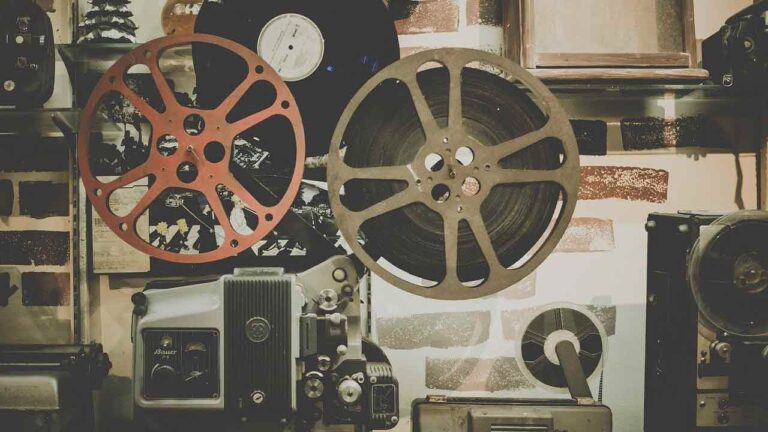
You might also like these
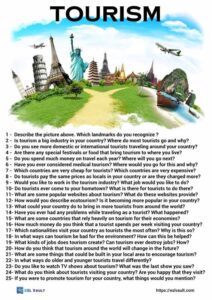
25 Conversation questions about tourism
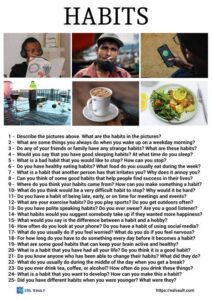
25 habits conversation questions
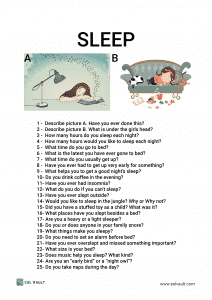
25 sleep conversation questions
Free ESL and English teaching resources, no sign up required. Just find what you like, download it and head to class!
Privacy Policy
Share ESL Vault with your friends!
- Writing Worksheets
- Vocabulary Worksheets
- Pronunciation
- Kids worksheets
- Idioms and Expressions
- ESL Puzzles
- ESL Pair Work Activities
- ESL Conversation Questions
- Coloring Pages
- Articles, Lists and Ideas
- Art and Craft Activities

- Intermediate
- All Conversation Types Reading (3) Vocabulary (1)
- All Topics Activities (16) Animals (13) Books (3) Business (32) Children (22) Education (38) Entertainment (16) Environment (7) Exercise (11) Family (15) Food and Drink (28) Health (48) History (4) Internet (22) Languages (6) Law and Order (34) Leisure (34) Life (102) Money (20) Movies (4) Music (10) Politics (25) Random (34) Relationships (6) Religion (4) Technology (15) Shopping (10) Spirituality (7) Sport (13) Transport (4) Travelling (15) Work (33)
- All Levels Intermediate (3) Advanced (1)

Planet of The Apes

Harry Potter

Back To The Future
EnglishPost.org
How to Talk about Movies in English
Movies are one of the topics that people like to talk about.
One of my favorite movies is GoodFellas, a 1990 American crime film directed by Martin Scorsese.
The film narrates the rise and fall of mob associate Henry Hill and his friends and family from 1955 to 1980.
Learn How to Talk about Movies with this helpful guide.
Table of Contents
Type of Films
Movie terms, questions to talk about movies, movies in general, a movie in specific, where to watch movies, phrases to use when you like a movie, phrases to use when you don’t like a movie, what was the movie about, teaching with films: logorama, task after watching the film, learn more english.
If you want to Talk about Movies, you need to learn more about the basic movie genres
These are some movie that will help you go deeper in this topic.
- Script: something written by hand
- Stunt Man: a stand-in for movie stars to perform dangerous stunts
- Soundtrack: songs included in a film
- Actor: a performer in theater, television, or film
- Producer: someone who finances and supervises the making of a show
- Director: The person who directs the making of a film
- Special effect: an effect used to produce scenes that cannot be achieved by normal techniques
- Blooper: an embarrassing mistake
- Box office: the office where tickets of admission are sold
- Cast: assign the roles of (a movie or a play) to actors
- Critic : a person engaged in the analysis and interpretation of art
- Flashback : a transition in a story to an earlier event or scene
- Sequel: a part added to a book or film that continues and extends it
- Cameraman: a photographer who operates a movie camera
- Premiere: the first public performance of a play or movie
These are some common questions that you can ask when you are talking about movies.
- What’s your favorite movie?
- What’s your favorite horror movie?
- What kind of movies do you like?
- What’s your favorite drama film?
- What do you think about super hero movies?
- What’s your favorite actor or actress?
- Which horror movie is the scariest? Why?
- Do you like independent films?
- What movies are you looking forward to watching?
- What do you think about the main character?
- Did you like the ending? What would you change?
- Would you recommend that movie?
- Do you have Netflix or any other streaming app?
- Have you ever tried HBO go?
- How often do you go to the movie theater?
- When was the last time that you went to movie theater?
For more English conversation questions about movies, check this post
One of the most common questions asked after you watch a movie is how the movie was:
These are some of the phrases that people use when they consider a movie live up to their expectation
- There are great things about this film.
- Perhaps the best special effects I’ve ever seen in a movie.
- The sound effects complemen t the action perfectly.
- The movie is funnier than most good comedies
- I was totally blown away by this film.
- This horror movie is a masterpiece.
- Without a doubt one of the most influential films of all time
- This film should be remembered throughout history
- The movie is full of twists and surprises
- The documentary was informative
- I love how the film explores controversial topics.
- The dialogue is terrible.
- The film is overrated
- The movie was boring .
- This movie adaptation was a real letdown.
- The plot is very complex.
- The movie is quite predictable.
- No part of this movie made sense.
- One of the most stupid, senseless and ridiculous movies I have ever watched
When you are asked what a film is about, you are not supposed to explain the whole plot.
This question usually requires a short explanation:
- The life of Mason, from early childhood to his arrival at college (Boyhood)
- An ancient struggle between two Cybertronian races, the heroic Autobots and the evil Decepticons, comes to Earth, with a clue to the ultimate power held by a teenager. (Transformers)
- Amélie is an innocent and naive girl in Paris with her own sense of justice. She decides to help those around her and, along the way, discovers love (Amélie)
Logorama is a 16-minute French animated film written and directed by H5/François Alaux, Hervé de Crécy and Ludovic Houplain, and produced by Autour de Minuit.
The film depicts events in a stylized Los Angeles, and is told entirely through the use of more than 2,500 contemporary and historical logos and mascots.
The film won the Prix Kodak at the 2009 Cannes Film Festival and the Academy Award for Best Animated Short Film at the 82nd Academy Awards
- Watch the short animated film Logorama and enjoy it.
- Write in a sheet of paper what you think about the film.
- Watch Logorama Again and take notes about the logos that you were able to recognize and the specific scenes where you saw them.
- Record yourself for five minutes talking about the film and the logos you recognize.
Now that you have watched it , tell us how much you like or hate it, support your answer with details.
This is a great video to learn more expressions to talk about movies in English
I hope that you have found what you were looking for about movies in English
These are some posts that you might want to check before you go
- How to Express Likes and Dislikes in English
- How To Make a Reservation in English
- How to Describe Things in English
- How to Describe My Dream House
- How to Describe Physical Appearance
- How to Give Personal Information in English
- How to Talk about Family Members in English
I am Jose Manuel, English professor and creator of EnglishPost.org, a blog whose mission is to share lessons for those who want to learn and improve their English
Related Posts

How to Ask for Clarification in English

Soft Skills in English: Guide and Vocabulary

How to Talk about Vacation Plans in English
ESL Speaking
Games + Activities to Try Out Today!
in Activities for Adults · Activities for Kids
ESL Television and Movies: Activities, Games, Worksheets, Lesson Plans
If you’re looking for some of the top options for ESL movies, television and film, then you’re certainly in the right place. We have the best movie activities, TV games, and a whole lot more to make your TEFL lessons as awesome as possible. Keep on reading for everything ESL television!
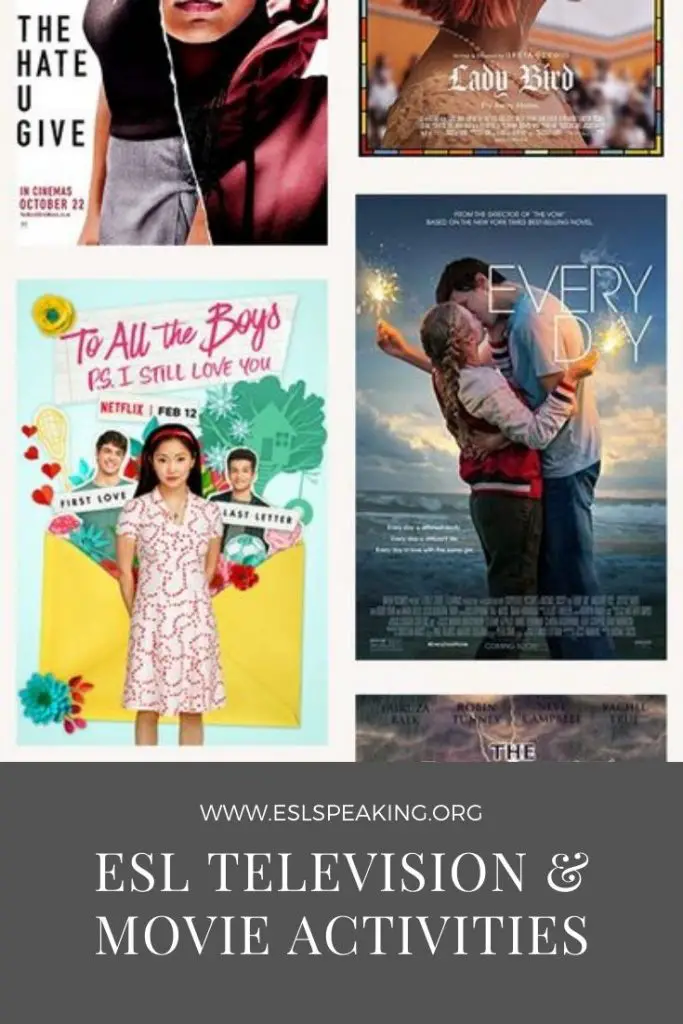
ESL television games and activities
ESL Movies and Television Games and Activities
Let’s get into everything you need to know about teaching English with TV shows and films.
#1: Would you Rather?
This is a simple speaking activity that works nicely with television or film. Make up a bunch of would you rather questions, or get the students to make their own. For example, Would you rather…
- watch a comedy or horror movie?
- see a movie at home or in the movie theatre?
- watch a TV series or a movie?
More details here:
ESL Would You Rather?
#2: Picture Prompt
This is one of my favourite warmer activities that helps students activate their prior knowledge and become interested in a topic.
Show a picture of the movie or TV clip that you plan to show. Or, a frame from the clip itself. Depending on the level, students can do any of the following:
- say what they see in the picture
- make a prediction about what will happen next
- talk about if they’re familiar with that movie or TV show already
Want to give it a try? Have a look here:
ESL Picture Warmer .
#3: Speaking Fluency Activity
This is a nice TEFL speaking activity that focuses on fluency. Have students prepare to talk about their favourite movie or TV show for two minutes without stopping.
Put students into pairs and they do this with a partner. To encourage active listening, I require that students ask a follow-up question or two based on what they heard.
Then, switch partners and repeat, except that students have to include all the same information in 90 seconds. Do the same for 60 seconds. Students have to speak more quickly.
It’s possible to adjust the times for higher, or lower-level students. Have a look here:
120-90-60 ESL Speaking Activity .
#4: Conversation Starters about Films and TV Shows
Maybe you’ve had this experience before? You tell the students to talk about movies or TV shows are met with mostly silence, especially with quieter classes. The problem is not the students, it’s that they don’t have enough to work with!
A better way is to give some conversation starters related to whatever the topic of the day is. Also, encourage free communication with each other and things like follow-up questions. But, it’s good for students to have something to refer back to if necessary. Find out more:
ESL Conversation Starters .
#5: Running Dictation
This is a nice activity for reviewing TV or movie vocabulary. For example, genres (action, comedy, etc.) or words like actor/actress.
Find, or write a conversation between two people talking about their favourite movies and movie stars. Then, students have to work together to dictate the conversation. After that, they can put the conversation into a coherent order. Check it out:
ESL Running Dictation .
#6: Just One Question
This is a nice conversation activity that works well with TV and film. In pairs, students have to come up with a single question they want to ask their classmates about their TV or movie viewing habits. For example:
- What was the last movie you watched?
- How often do you go to the movie theatre?
- What’s your favourite movie?
Students have to ask at least 10 of their classmates, compile the results and then report them to the class. Learn more about it:
ESL Just One Question Activity .
#7: Dictogloss
#8: Who Am I?
This is a classic party game that you can use for movie stars as well. Write down a bunch of famous actors or actresses that students would know. Then, tape them onto everyone’s backs and they have to go around the class, asking people yes/no questions to try to find out who it is.
Want to give it a try? More details here:
#9: Guessing Game for ESL Television
This is a simple warmer activity that can be used to generate some interest at the beginning of class. Find around 15-20 pictures or famous people, or frames from movies or TV shows that people would recognize. Then, students have to take turns describing one of them to their partners. Learn more:
ESL Guessing Game .
#10: Dialogue Substitution
#11: Story Timeline
This is an ESL activity that works well for reading as well as when watching something. A movie, short video clip or TV episode.
Students have to work together in pairs or small groups to put the events into the correct order. It’s a nice way to get more value out of watching something in class! Check it out:
Story Timeline .
#12: Movie and TV ESL Conversation Topics

- Amazon Kindle Edition
- Bolen, Jackie (Author)
- English (Publication Language)
- 279 Pages - 07/12/2020 (Publication Date)
If you’re looking for some ready-made lessons to save you a ton of time, have a look at this book: 6 7 ESL ESL Conversation Topics . There are units about movies and TV, along with a ton of other interesting things!
#13: Just a Minute
This is a challenging speaking activity that makes a nice warm-up activity. Write down some questions related to TV or movies on the whiteboard. For example:
- What’s your favourite TV show? Why?
- Where do you like to watch TV or movies?
- Do you prefer watching TV alone or with a friend or family member?
Then, put students into groups of 4. Throw a paper ball at the board and the first person has to talk for one minute without stopping about whichever question the ball hits. Each other person in the group has to ask a follow-up question. Erase that question and repeat until all 4 students are done. Find out more:
ESL Just a Minute Activity.
#14: TV/Movies Speaking Lesson Plan
It’s possible to plan a speaking lesson about almost any topic, including this one. Have a look here for all the details and steps to follow:
#15: Information Gap Activities for TV and Movies
This is a classic activity for this unit! In an information gap, each student gets a part of the complete set of information. They have to talk to their partner to get the rest of it. You might consider doing the following:
- TV schedules
- Likes/dislikes for TV shows, etc.
Find out more:
ESL Information Gap Activities .
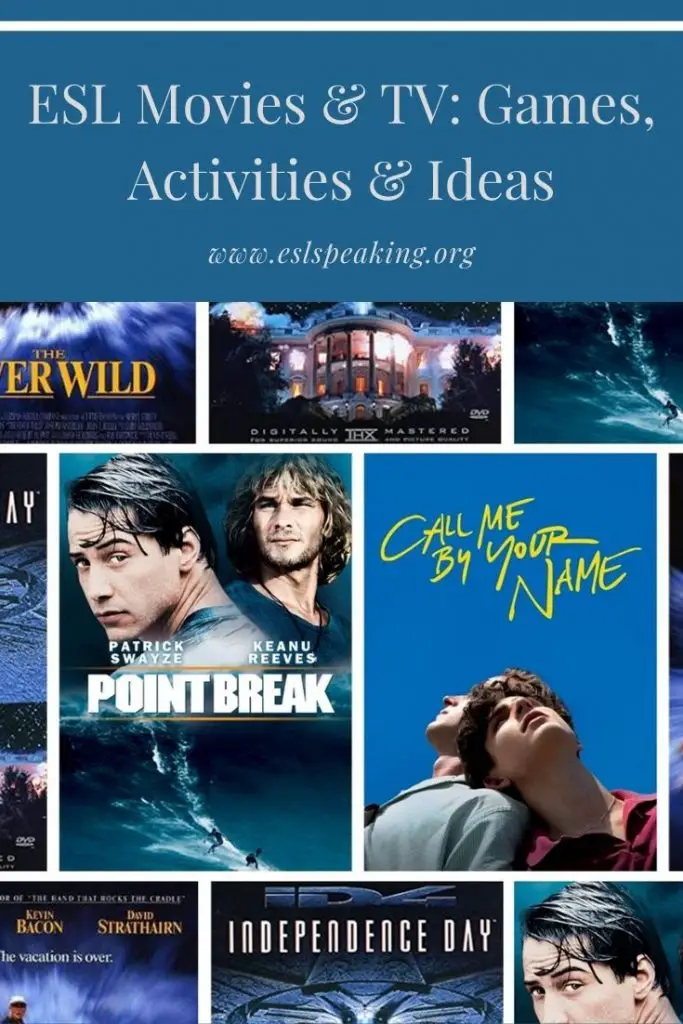
ESL movie lessons
#16: Movie Scene Descriptions
Show a short clip from a movie or TV show with the sound off. Have students describe what’s happening in the scene, using vocabulary related to actions, emotions, and settings.
#17: Movie Dialogue Matching
Provide students with a list of movie quotes or dialogues. Show a clip and have them match the dialogue to the character or context in the scene.
#18: Movie Vocabulary Bingo
Create bingo cards with words or phrases related to TV and movies. Play a movie or TV show and have students mark off the words or phrases they hear.
#19: Character Profiles
Assign students a character from a movie or TV show to research. Have them create a profile, including the character’s name, personality traits, and role in the story, and present it to the class.
#20: Movie Poster Descriptions
Show movie posters or DVD covers and have students describe what they see using adjectives, prepositions, and vocabulary related to movies.
ESL TV and Movies Lesson Plans
There are a number of ESL movie lesson plans to consider checking out. Here are some of our favourites:
Resources for Teaching With Movies and TV
There are a number of resources for teaching English with TV shows and movies. Here are some of the best options:
Film English
English Club
Larry Ferlazzo
ISL Collective
Did you like these Ideas for ESL Movie Lessons?

- 148 Pages - 03/09/2016 (Publication Date)
Yes? Then you’re going to love this book you can find on Amazon: 101 ESL Activities for Teenagers and Adults . The key to better English classes for all ages is a wide variety of interesting and engaging ESL games and activities and this book will help you get there in style.
You can find the book in digital, print and audio formats. Pick up a copy to keep on the bookshelf in your office to use as a quick reference guide. Or, take the digital version with you to your favourite coffee shop for some lesson planning on the go. Finally, consider picking up the audio version for some inspiration on your way to work.
Whatever version you choose, get ready for some ESL teaching awesome in your life!
Have your Say about ESL Movie and Television Lessons
Did you like these ideas for ESL movies and ESL television lessons? Leave a comment below and let us know what you think. We’d love to hear from you.
Also, be sure to give this article a share on Facebook, Pinterest, or Twitter. I’ll help other busy English teachers, like yourself find this useful resource.
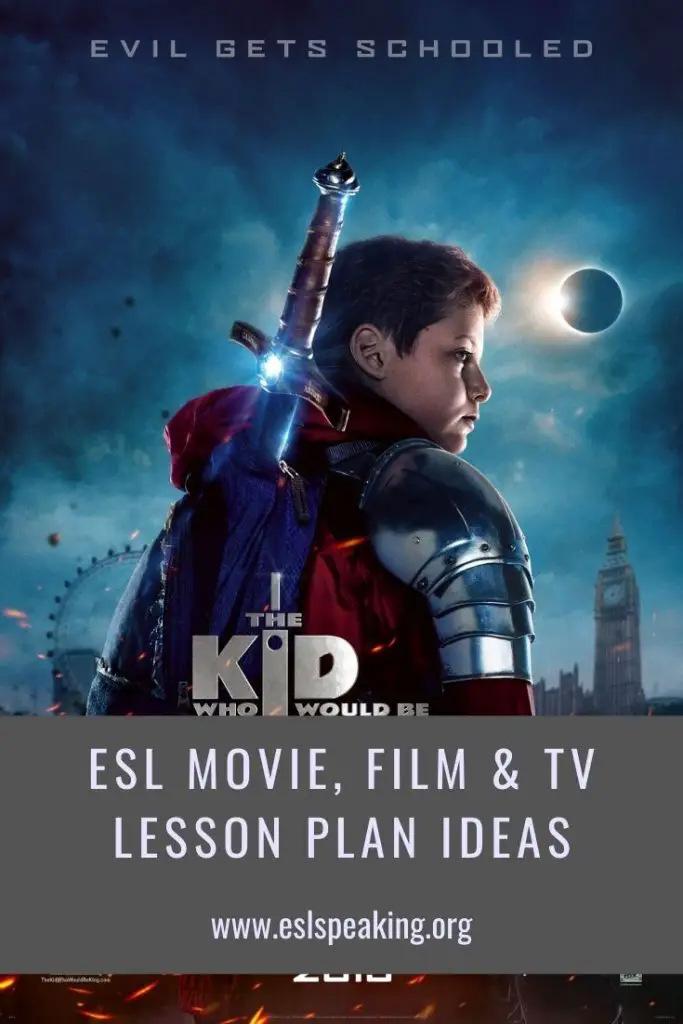
Last update on 2024-04-03 / Affiliate links / Images from Amazon Product Advertising API
About Jackie
Jackie Bolen has been teaching English for more than 15 years to students in South Korea and Canada. She's taught all ages, levels and kinds of TEFL classes. She holds an MA degree, along with the Celta and Delta English teaching certifications.
Jackie is the author of more than 100 books for English teachers and English learners, including 101 ESL Activities for Teenagers and Adults and 1001 English Expressions and Phrases . She loves to share her ESL games, activities, teaching tips, and more with other teachers throughout the world.
You can find her on social media at: YouTube Facebook TikTok Pinterest Instagram
Leave a Reply Cancel reply
Your email address will not be published. Required fields are marked *
Our Top-Seller

As an Amazon Associate, I earn from qualifying purchases.
More ESL Activities

Most Common Words Starting with A with Pictures

ESL Kindergarten Games, Activities, Lesson Plans, Resources for Kindy

Animal Names: Animals that Start with the Letter U

Common Lab Equipment Names and Uses with Pictures
About, contact, privacy policy.
Jackie Bolen has been talking ESL speaking since 2014 and the goal is to bring you the best recommendations for English conversation games, activities, lesson plans and more. It’s your go-to source for everything TEFL!
About and Contact for ESL Speaking .
Privacy Policy and Terms of Use .
Email: [email protected]
Address: 2436 Kelly Ave, Port Coquitlam, Canada

100 Movies Questions

Join us on a cinematic adventure with our 100 movie quiz questions with answers, neatly divided into five exciting rounds.
From Movie Superstars to The Brits, each round features 20 film questions and answers to test your film knowledge.
Whether you’re a casual movie buff or a seasoned cinephile, our quiz promises entertainment, challenge, and a celebration of cinema. So, grab your popcorn and let the ultimate film quiz begin!
Movie Quiz Round 1: Superstars
1. Who played the head of the Corleone family in “The Godfather”?
Show Answer
2. Which Welsh actor starred opposite Debra Winger in “Shadowlands”?
3. Who played Han Solo in “Star Wars”?
4. Which Jack starred with Shirley Maclaine in “Terms Endearment”?
5. Which British actress has starred in “Titanic”, “Enigma” and “Finding Neverland”?
6. Which British Michael won an Oscar for “Hannah and Her Sisters”?
7. Which Jack’s films vary from “Some Like It Hot” to “The Odd Couple”?
8. Which Mrs Bruce Willis starred in “Ghost”?
9. Which Katharine has received a record 12 Oscar nominations?
10. Who starred in and wrote the song “Evergreen” for “A Star is Born”?
11. Which Warren starred in “Dick Tracy” and “Bugsy Malone”?
12. Which Paul was in “The Sting” and “The Color of Money”?
13. Although born in the US, where was Mel Gibson brought up?
14. Who won Oscars for “Philadelphia” in ’93 and “Forrest Gump” in ’94?
15. Who was the female Kramer in “Kramer vs Kramer”?
16. In which decade did Sylvester Stallone first play Rambo?
17. Which country was Sean Connery born in?
18. Which Al won an Oscar for his role in “Scent of a Woman”?
19. Who was in “Rain Man” and was one of Four Good Men?
20. What “Color” is in the title of Whoopi Goldberg’s first major film?
Round 2: Who’s Who?

21. Who played opposite Ewan McGregor in the comedy “Down with Love”?
22. Who played Cruella the Vil in the “real” version of the “101 Dalmatians”?
23. Which Martin Scorsese film was about the life of Howard Hughes?
24. Who played the aunts in “James and the Giant Peach”?
25. Who directed “Born on the Fourth of July” and “Natural Born Killers”?
26. Who played the Saint in the 90s movie?
27. Who was chosen to play Heathcliff in the 90s “Wuthering Heights”?
28. Who was the British star of “Fierce Creatures”?
29. Who starred as the Elephant Man?
30. Who married Mickey Rooney and Frank Sinatra?
31. Who insured whose legs for a million dollars with Lloyd’s of London?
32. Who was the heroine in the 30s version of “King Kong”?
33. Who played the mother in “Mermaids”?
34. Whom did Alan Rickman play in “Robin Hood, Prince of Thieves”?
35. Who played opposite Leonardo DiCaprio in “The Gangs of New York”?
36. Whose film production company is called Jagged Films?
37. Who played Batman in the 1997 “Batman and Robin”?
38. Which blonde screen legend made only 11 films, three for Hitchcock?
39. Which rock star did Angela Bassett play in a 1993 biopic?
40. Who was Jack Somersby in “Somersby”?
Film Quiz Round 3: The Oscars

41. Which film ends, “Louis, I think this is the beginning of a beautiful friendship”?
42. Whom did Jodie Foster play in “The Silence of the Lambs”?
43. What was Henry Fonda’s last film, for which he won an Oscar?
44. Who said, “Life is like a box of chocolates, you never know what you’re going to get”?
45. James Stewart won his only Best Actor Oscar for which classic?
46. The film documentary “When We Were Kings” told of which sports clash?
47. In which city is “The Sting” set?
48. What does the male figure stand on, on the Oscar statuette?
49. Which Whoopi Goldberg film had 14 nominations and no win at all?
50. Which film was the first all-colour winner of the Best Picture award?
51. From 1952 to 1977, which Brit had 10 nominations and never won?
52. Who was the oldest Best Actress award recipient when she won in 1989?
53. Which British star was the first Best Actor award winner of the 1990s?
54. What did Marlon Brando do with his 1972 Oscar?
55. Who played Katharine Clifton in “The English Patient”?
56. Best Director Bob Fosse was the only 70s winner whose film was not Best Picture that year. Which picture was it?
57. Who danced together for the last time at the 1966 Oscar ceremony?
58. Kevin Costner was nominated for Best Director and Best Actor for “Dances with Wolves” – which did he win?
59. Which cancer sufferer’s last public appearance was at the 1979 Oscar ceremony?
60. Which was the first black-and-white film to win Best Picture after “The Apartment” in 1960?
Round 4: Animation Movies
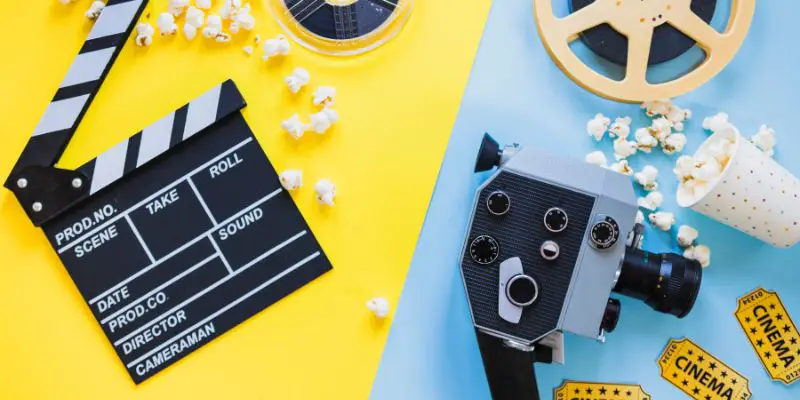
61. Which of the Seven Dwarfs had the longest name?
62. Who created Wallace and Gromit?
63. What was Mickey Mouse originally called?
64. What was Disney’s first full-length cartoon called?
65. Which film takes place in Pepperland?
66. Who wrote the song lyrics for “Aladdin”?
67. Who provided the voice of PC Mackintosh in “Curse of the Were-Rabbit”?
68. “When You Wish Upon a Star” is from which Disney film?
69. What is Simba’s uncle called in “The Lion King”?
70. “The Sword in the Stone” centres on the legend of which King?
71. Which film has the signal of the “twilight bark”?
72. Which character was the star of Disney’s “Steamboat Willie”?
73. Which song from “Aladdin” in 1992 won an Oscar?
74. In which Disney film are Leopold Stokowski and the Philadelphia Orchestra seen?
75. What sort of animal is King Louie in “The Jungle Book”?
76. What is the Princess called in “Aladdin”?
77. Who were the original two Dalmatians in the 1961 classic?
78. What sort of creature was Thumper in “Bambi”?
79. Which was the first major Disney cartoon film released after Walt Disney’s death in 1966?
80. What was the name of Disney’s Great Mouse Detective?
Movie Quiz Round 5: The Brits

81. For what did “Four Weddings and a Funeral” win Oscar nominations?
82. What was the movie “Billy Elliot” called when it was shown at the Cannes Film Festival?
83. How many roles did Alec Guinness play in “Kind Hearts and Coronets”?
84. Who was Jane Seymour’s first father-in-law?
85. What was Anthony Hopkins’s role in “Bram Stoker’s Dracula”?
86. Who played Stephen Ward in “Scandal”?
87. In which film did Emma Thompson play a 1940s European and a present-day Californian?
88. Which actor won a BAFTA for “Chariots on Fire”?
89. Which was Julie Andrew’s first film with her husband Black Edwards?
90. Who appeared with Robert Redford, when just six, in “The Great Gatsby”?
91. Who played Schilndler’s Jewish accountant in “Schindler’s List”?
92. What was Roger Moore’s second movie as James Bond?
93. Who starred in and composed the score for “Bedazzled”?
94. Which actor has been co-owner of London’s Langan’s Brasserie?
95. Who played General Allenby in “Lawrence of Arabia”?
96. The reciting of whose poem in “Four Weddings and a Funeral” resulted in a book of his poetry becoming a best-seller?
97. Who won an Oscar for Best Picture in 1968, which his nephew also starred in?
98. Who played Anne Boleyn in “A Man for All Seasons”?
99. What was Glenda Jackson’s film debut?
100. What was Cilla Black’s first feature film?
As the final credits roll on our 100 movie quiz adventure, we hope you’ve enjoyed the journey through the diverse realms of cinema.
Whether you aced the Movie Superstars, decoded Who’s Who, guessed the Oscar winners, delved into Animation Movies, or celebrated The Brits, we trust the experience was both entertaining and enlightening.
Thank you for joining us on this thrilling ride through the magic of movies—until next time, may your love for cinema continue to flourish!
You might also like:
100 TV Quiz Questions and Answers
British Films Quiz
English Discussion on Movies
esl discussions.com.
HOME: More Discussions
PDF | Word | Help my site
THE DISCUSSION ON MOVIES
STUDENT A's QUESTIONS (Do not show these to Student B.)
STUDENT B's QUESTIONS (Do not show these to Student A.)

Copyright © 2008-2023 by Sean Banville | Privacy Policy | Links
After Shakira Said That Her Young Sons Thought That “Barbie” Was “Emasculating,” People Are Begging Parents To “Raise More Secure Men”
“I like pop culture when it attempts to empower women without robbing men of their possibility to be men,” Shakira said in a controversial new interview.

BuzzFeed Staff
When Barbie was released in July 2023, social media was immediately flooded with discourse as people reacted to the highly-anticipated movie.
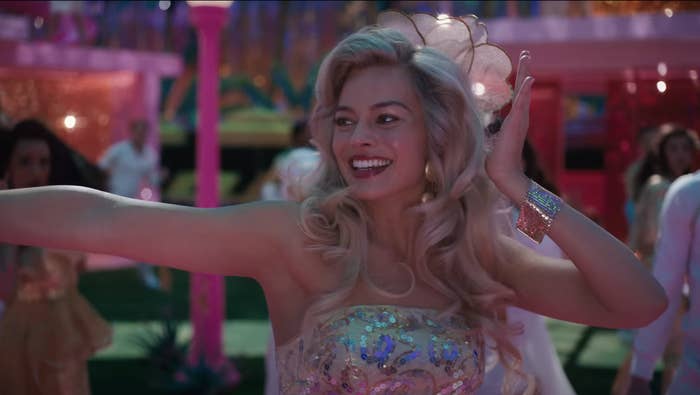
The film grossed over $1 billion in its first three weeks of release, and writer and director Greta Gerwig became the first female solo director in history to have a billion-dollar movie.
But while its cultural impact and staggering box office success is indisputable, some were left disappointed by Barbie’s storyline, which focused heavily on Ken.
Ryan Gosling stole the show as Margot Robbie ’s Barbie’s male counterpart, with the plot focusing on both of them learning about the patriarchy for the first time after they left Barbie Land and entered the Real World.
Others also criticized Barbie for being “ feminism 101 ,” with America Ferrera’s famous speech about all of the things that women are expected to be towards the end of the movie being branded “ basic ” and “ surface level .”
And the Barbie discourse erupted once again earlier this year when Margot and Greta didn’t receive Best Actress or Best Director Oscar nominations, but Ryan Gosling did receive a Best Supporting Actor nomination, as well as a nod in the Best Original Song category.
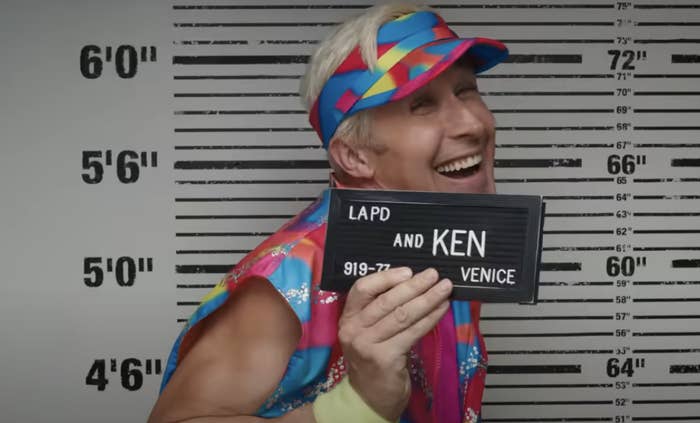
“Nominating Ken but not Barbie is so on the nose it hurts,” one viral tweet read at the time, with Hillary Clinton even entering the conversation to throw her support behind the two snubbed women.
By this point, people were getting fatigued by the conversation, and the outrage was branded “ the very epitome of white feminism ” as it was pointed out that Greta and Margot not being recognized by the academy was overshadowing Latinx actor America’s achievement after she was nominated in Best Supporting Actress.
It's also worth mentioning that the academy recognized Margot’s role as a producer in the Best Picture category, and Greta was nominated alongside Noah Baumbach for Best Adapted Screenplay.
Now, almost nine months after Barbie’s release, the debate around its feminist themes has once again gained traction due to Shakira ’s claim that watching the film had been an “ emasculating ” experience for her two sons.

The singer shares 11-year-old Milan and nine-year-old Sasha with her ex-partner Gerard Piqué.
In case you missed it, Shakira made a series of eyebrow-raising comments about Barbie in a new interview with Allure that was published on Monday.
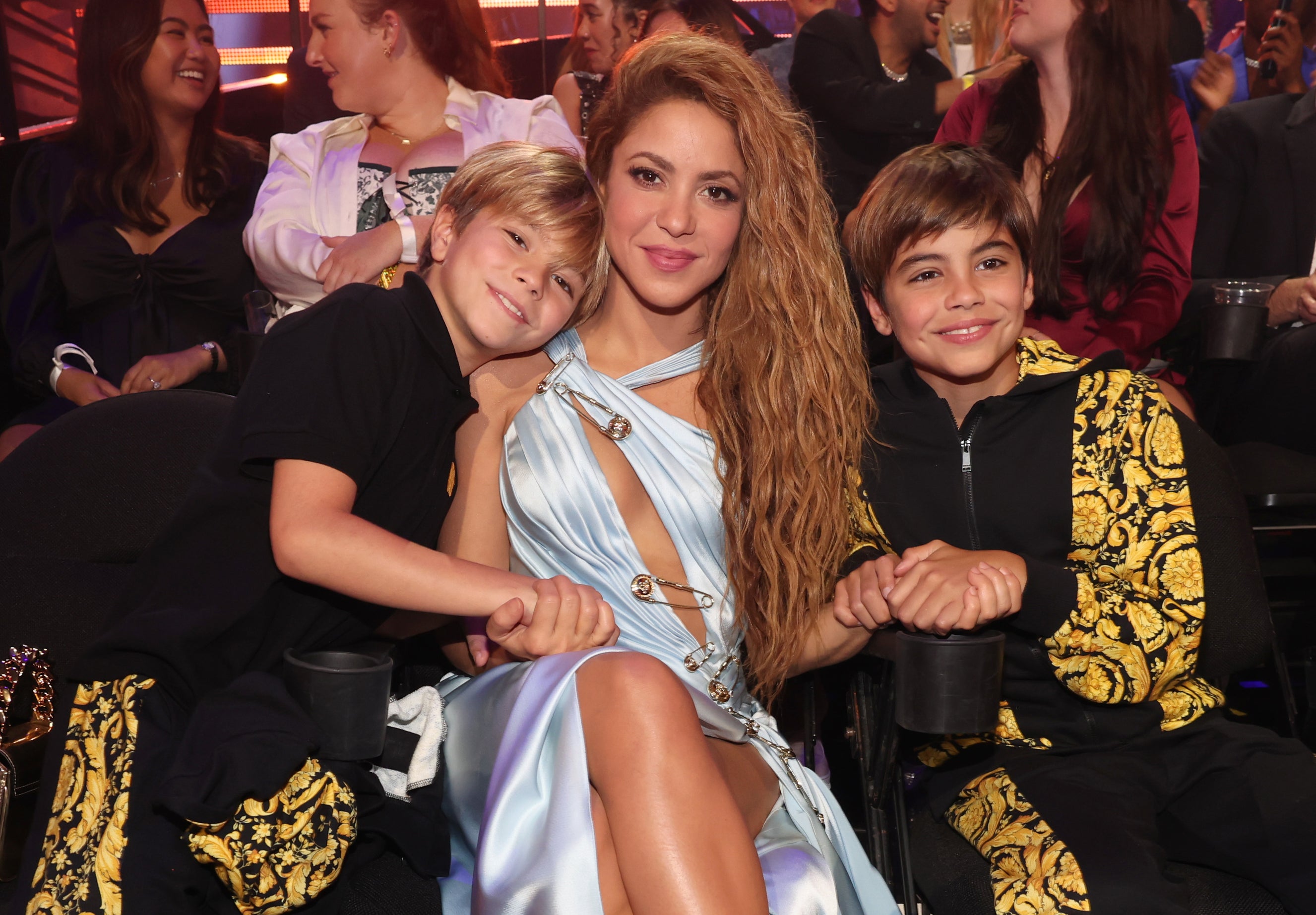
When asked about her thoughts on the blockbuster, she said: “My sons absolutely hated it. They felt that it was emasculating. And I agree, to a certain extent. I'm raising two boys. I want 'em to feel powerful too [while] respecting women. I like pop culture when it attempts to empower women without robbing men of their possibility to be men, to also protect and provide.”
“I believe in giving women all the tools and the trust that we can do it all without losing our essence, without losing our femininity,” Shakira continued. “I think that men have a purpose in society and women have another purpose as well. We complement each other, and that complement should not be lost.”
“Just because a woman can do it all doesn’t mean she should?” the star then asked. “Why not share the load with people who deserve to carry it, who have a duty to carry it as well?”
Suffice to say, people had a lot of opinions on Shakira’s comments and took to social media to share their thoughts.
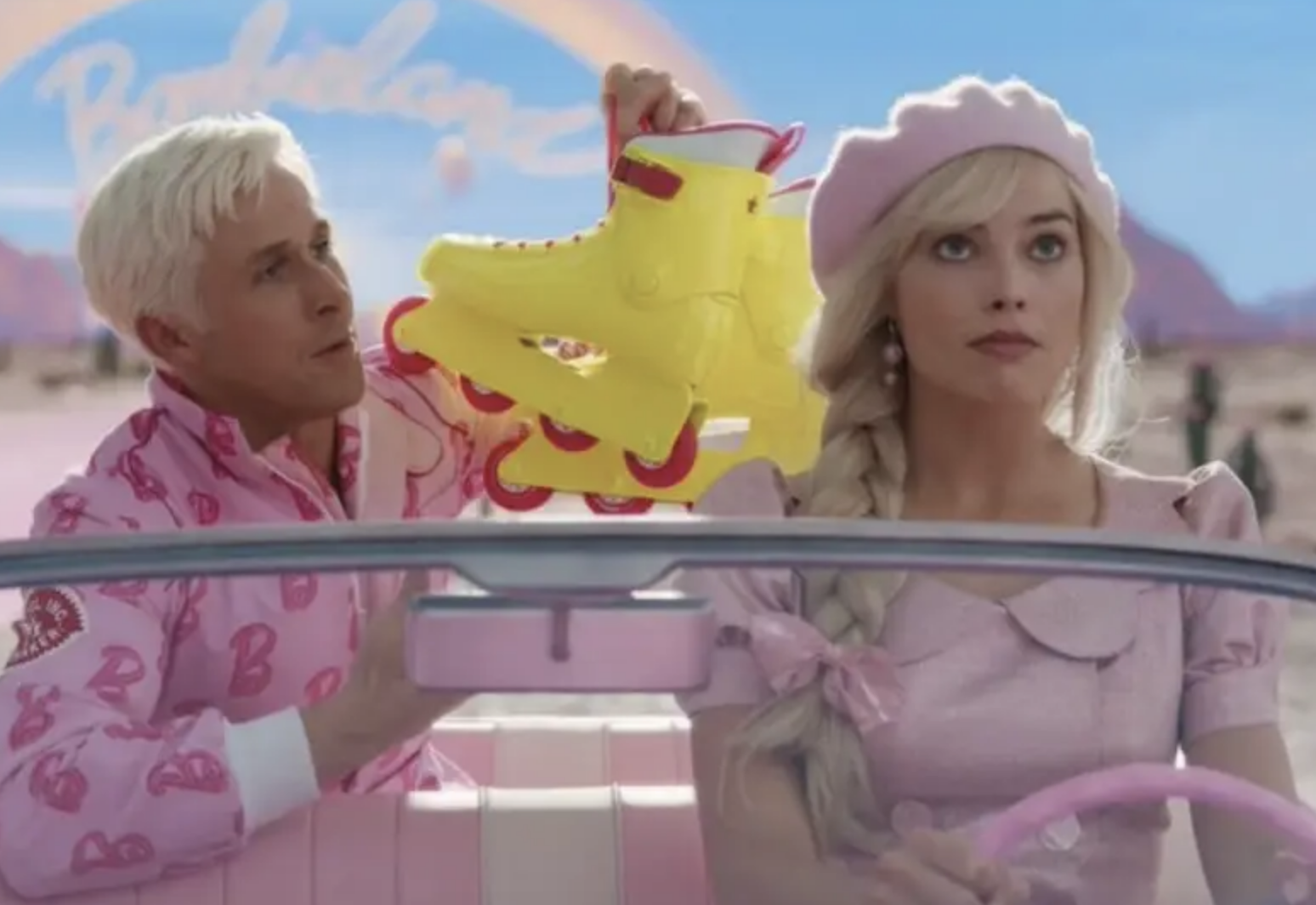
Discussing what the star had said on a Reddit forum, one popular comment simply reads: “You don't have to like Barbie as a movie (I loved it personally) but this is still one of the worst takes I've ever heard. Girl bye.”
Others were confused about what parts of the storyline were “emasculating” to young men, with one person asking: “emasculating? Why, bc Ken had an emotion and didn't end the movie as god? What's going on with your sons Shakira.”
“It's baffling ngl because Barbie's narrative dedicated soooo much time to Ken and his storyline/character development and went out of it's way to sympathize with his internal struggles and insecurities, and people still got mad,” another echoed.
While somebody else retorted: “Raise more secure men. I loved the movie."
It was also pointed out that Shakira’s quotes validated the entry-level feminism that previously saw Barbie receive backlash, with one popular comment reading: “When I watched it I thought that the feminist message was a bit basic and superficial, but it seems that actually that message is needed a lot.”

“There was a lot of discourse about the movie’s message around the Oscars and how it was too surface level to be meaningful or impactful but idk,” another user wrote. “I agree that it’s incredibly introductory, and yet there are people that walked away from it feeling like it was emasculating and man-hating. To me that says a lot. Everyone starts somewhere and if the Barbie movie is someone’s start, I can’t write it off just because my feminism is much more developed. It’s all very interesting to say the least."
This sentiment was echoed over on X, formerly Twitter, where one viral tweet about Shakira’s comments reads: “this is why barbie is a necessary movie for many women to be introduced to feminism 101 as they still suffer from internalised misogyny.”
“Whenever people complain about modern society ‘tearing men down’ and ‘emasculating’ them, it always comes back to wanting to maintain the prestige attached to masculinity,” somebody else tweeted . “It's always about pretending that gender roles are natural and not about power and access to resources.”
While another claimed : “If your sons hated a freaking Barbie movie because they felt ‘emasculated’ then you have failed to raise them correctly, like that’s on you beautiful.”

“Shakira: My boys need all movies (including female drive ones named Barbie) to portray Masculinity & Femininity the way they’ve done for the past 100 years or else they’ll feel small and irrelevant,” one more wrote .
“she really decided to set herself up for disaster with this horrendous take,” another user wrote . Somebody else tweeted : “her sons are 11 and 9 they do NOT use words like ‘emasculating.’”
Shakira has not publicly responded to the backlash to her comments, but we will let you know if she does!
Topics in this article

COMMENTS
Questions about Movies. Questions about Movies: Part A. Questions about Movies: Part B. Questions about Movies: Part C. Questions about Movies: Part D. Questions about Movies: Part E. Going to the Movies : Part F. Questions about Movies: Part G. Have you watched any of these Movies?
by EFL Listening Teacher | understand English movies | 5 comments. "So, did you like the movie?". "Yes". [pause] "So, shall we go get a drink or something…?". Have you ever had a conversation like that one after coming out of the cinema? Movies immerse you into the authentic language and culture of English-speaking countries.
Discussion Questions: What genres of movies do you like? What's your favorite movie of all time? Why do you like it? What's the worst movie you have ever seen? Is going to the movies too expensive? How much are you willing to pay to see a movie at the cinema? Will you pay more to see a 3D, 4D, or IMAX movie?
40+ Movie Conversation Questions to Spark Your Dialogues. August 27, 2023 by administrator. Lights, camera, conversation! Movies have the uncanny ability to transport us to different worlds, evoke emotions, and ignite discussions that last long after the credits roll. Whether you're a cinephile, a casual viewer, or someone looking to break ...
45 movie questions to start a conversation. Watching and talking about movies is a universal experience. This list of movie questions won't just improve your English speaking skills. It will help you spark some engaging and thoughtful discussions with the people in your life. Movies are one of the most popular ESL discussion topics for ...
Historical — Usually dramatic, these movies are made to show a specific time period. (Examples: "12 Years a Slave," "Titanic," "Hurt Locker") Horror — Movies that are scary or "gory," and that's filled with blood and violence. (Examples: "The Shining," "The Silence of the Lambs," "Saw") Independent (Indie ...
9. The resolution to the problem in the film can be satisfying or disheartening. Think about how some of your own problems have been resolved; write about a time when the solution was satisfying and write about a time when the solution was disheartening. 10. The resolution of the film teaches a lesson.
What is your favorite classical movie? Which do you prefer, comedy movies or horror movies? Have you ever watched a movie twice that you disliked? Do you ever download bootleg movies? In your country what common courtesies apply when watching a movie at the cinema? Have you ever seen a movie in another country?
Discussion Questions about Movies. These are some great discussion questions about movies. They have been divided into 10-question sets to make it easy for you to go through the questions. Remember that students can make follow-up questions if there is genuine interest from a student to know more about the answer the classmate gave.
Asking about what movies someone likes or the latest movie they watched is a great way to start a conversation. But there are so many more questions about movies that you can ask to strike up a conversation. Below you'll find 30 interesting conversation questions about the movies.
Movies Lesson Plan (ESL) - Chatting. "Talking about dreams is like talking about movies, since the cinema uses the language of dreams; years pass in a second and you can hop from one place to another.". Federico Fellini (1920—1993), Italian film director. You can also start a conversation by asking for movie suggestions.
We'll also look at sample questions from the IELTS exam. You can learn about other common IELTS topics here. Vocabulary about Movies. First of all, let's look at some useful movie-related vocabulary. We will group it in different sets so that it is easier to learn. Types of Movies. Let's look at the different types of movies.
Here are some discussion questions about the cinema for ESL speaking practice. There are some difficult cinema-related words that you may need to go over before you start the conversation. These include - popcorn, caramel, salty, VIP. foreign, subtitles, genre, previews, annoy, and local. The pictures at the top of the worksheet are ...
111. Question: Which movie musical stars Meryl Streep and Amanda Seyfried as a musical mother and daughter living on a Greek island? A. Mamma Mia! B. Burlesque C. Chicago D. La La Land. Answer ...
Answer: Chocolate. Related: Harry Potter Trivia: 50 Fun Facts About the Wizarding World. 9. Question: What shocking Wes Craven horror movie carried the marketing tagline, "To avoid fainting, keep ...
Movies. Showing results in all conversations for English learners of all levels based on the search term " Movies ".
Movie Terms. These are some movie that will help you go deeper in this topic. Script: something written by hand Stunt Man: a stand-in for movie stars to perform dangerous stunts Soundtrack: songs included in a film Actor: a performer in theater, television, or film Producer: someone who finances and supervises the making of a show Director: The person who directs the making of a film
Each other person in the group has to ask a follow-up question. Erase that question and repeat until all 4 students are done. Find out more: ESL Just a Minute Activity. #14: TV/Movies Speaking Lesson Plan. It's possible to plan a speaking lesson about almost any topic, including this one. Have a look here for all the details and steps to follow:
From Movie Superstars to The Brits, each round features 20 film questions and answers to test your film knowledge. Whether you're a casual movie buff or a seasoned cinephile, our quiz promises entertainment, challenge, and a celebration of cinema. So, grab your popcorn and let the ultimate film quiz begin! Movie Quiz Round 1: Superstars. 1.
ESL Conversation Lesson Questions: Free classroom handouts. English lesson on MOVIES. Use for debates, discussions, speaking, conversations, independent learning and more.
The Birthday Secret: A teenager finds an old photo revealing a family secret during a birthday party. The entire focus becomes an investigation leading to an unexpected plot twist. 7. Love in the Elevator: Two characters stuck in an elevator reveal secrets and form a connection.
Even more questions. Sure 276 questions is a lot, but how about more than 1,000 extra questions! 500 Good questions to ask. 200 Icebreaker questions. 200 Questions to get to know someone. 200 Questions to ask a guy. 200 Questions to ask a girl. More than 250 conversation starters for your enjoyment. A huge list of conversation starter questions ...
Farrow's op-ed accused Mr. Allen of molesting her in 1992, when she was 7—a charge that her mother, Mia Farrow, had raised at the time in a custody dispute with Mr. Allen. Authorities in two ...
Humphrey Bogart won his only Best Actor Oscar for his work on what movie? Casablanca The Maltese Falcon To Have and Have Not The African Queen
Now, almost nine months after Barbie's release, the debate around its feminist themes has once again gained traction due to Shakira 's claim that watching the film had been an " emasculating " experience for her two sons. John Nacion / WireImage. The singer shares 11-year-old Milan and nine-year-old Sasha with her ex-partner Gerard Piqué.